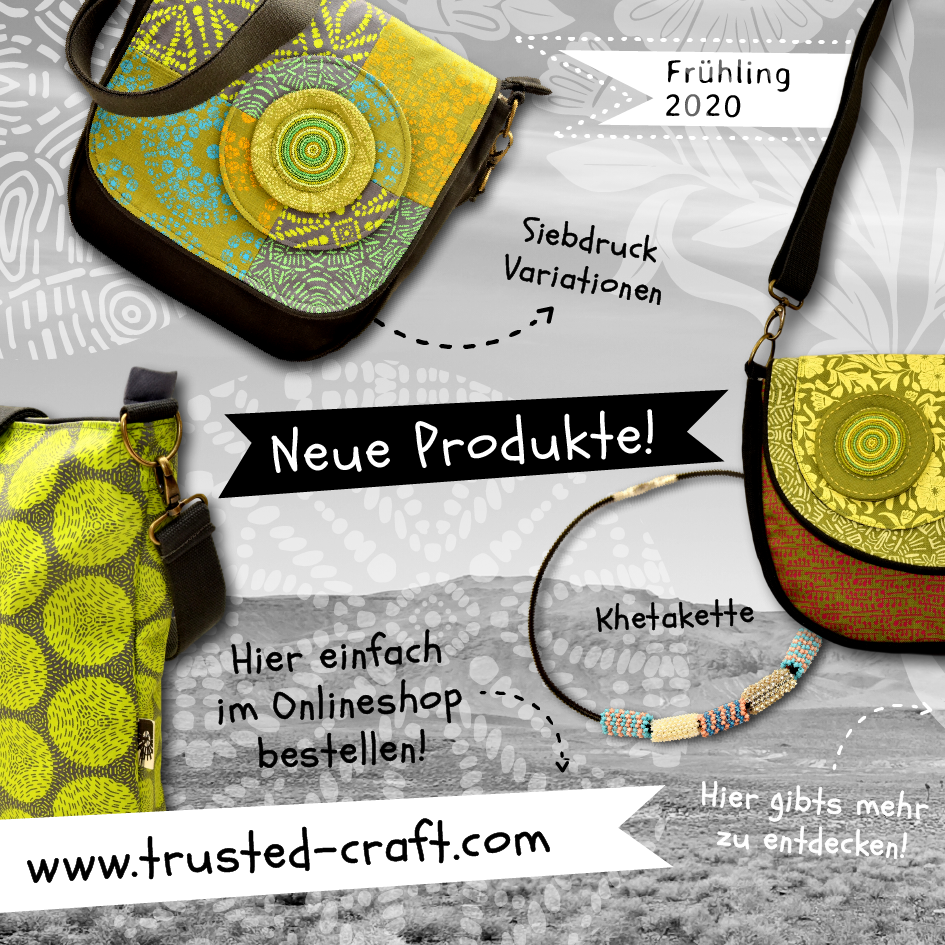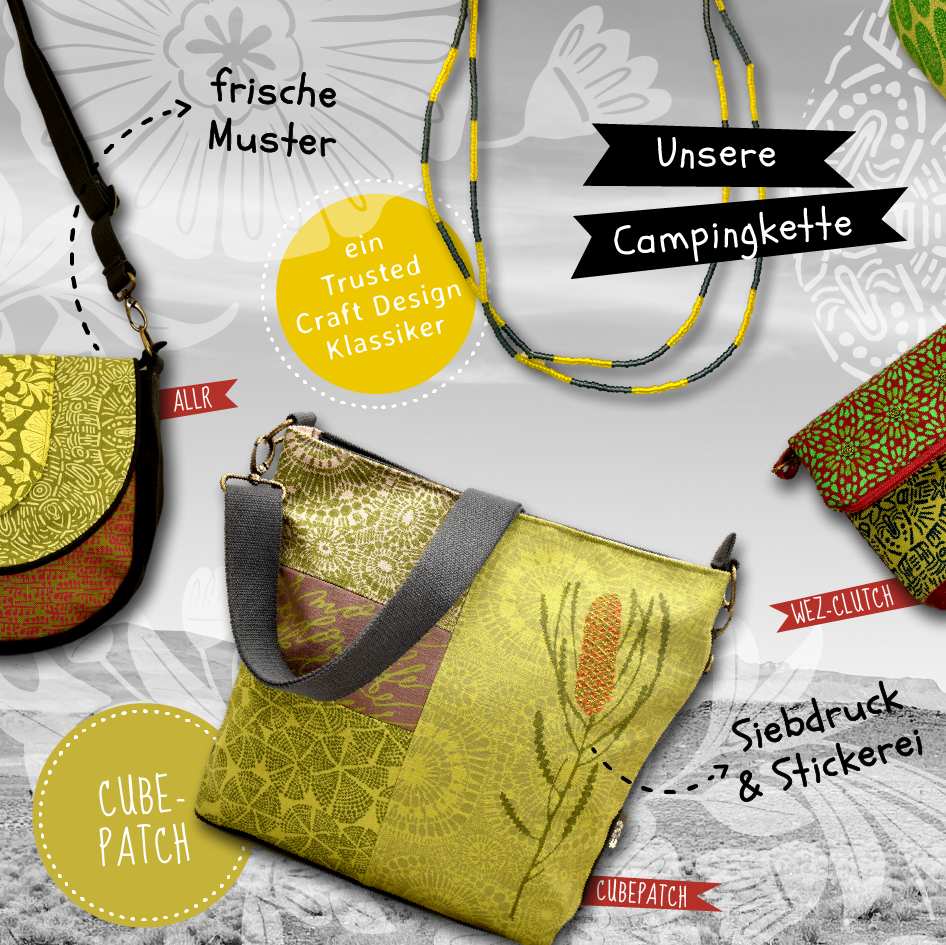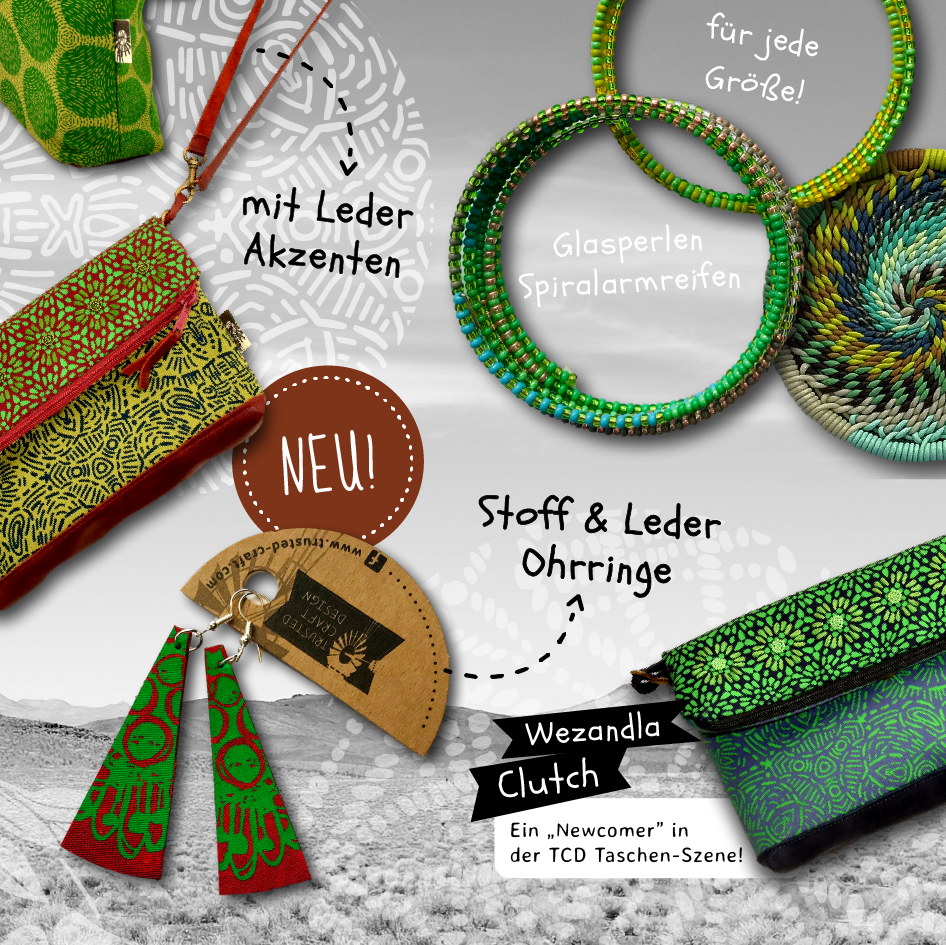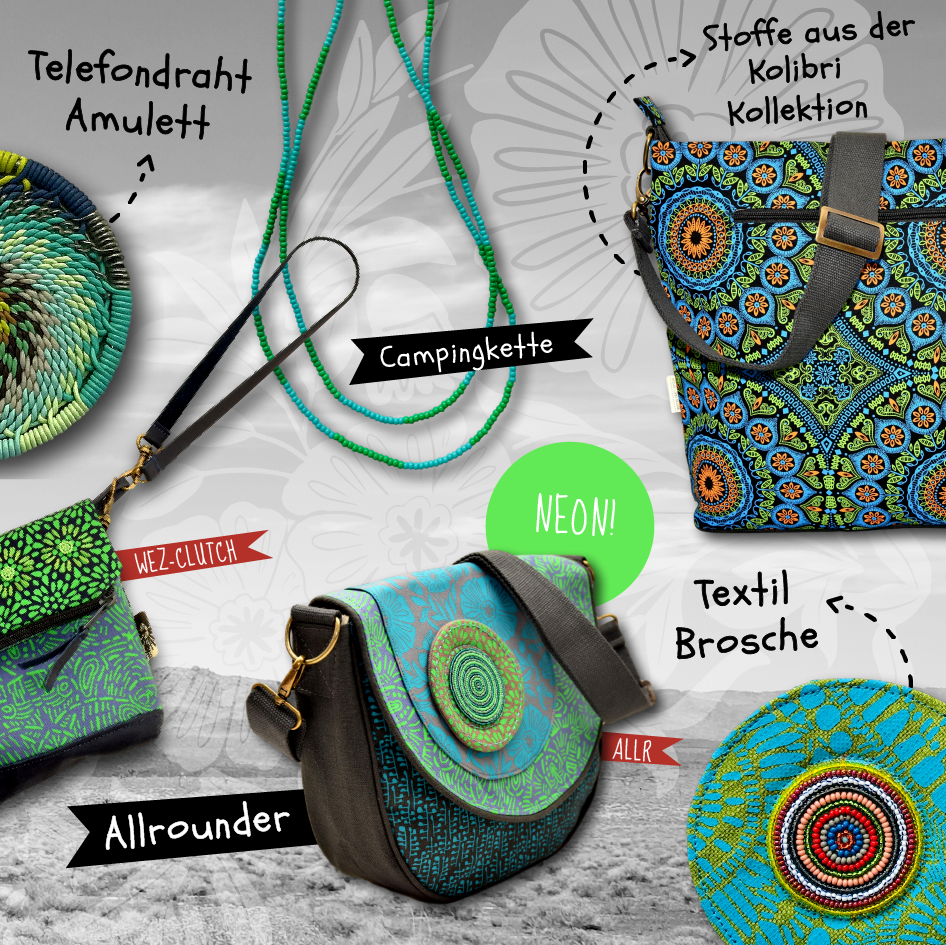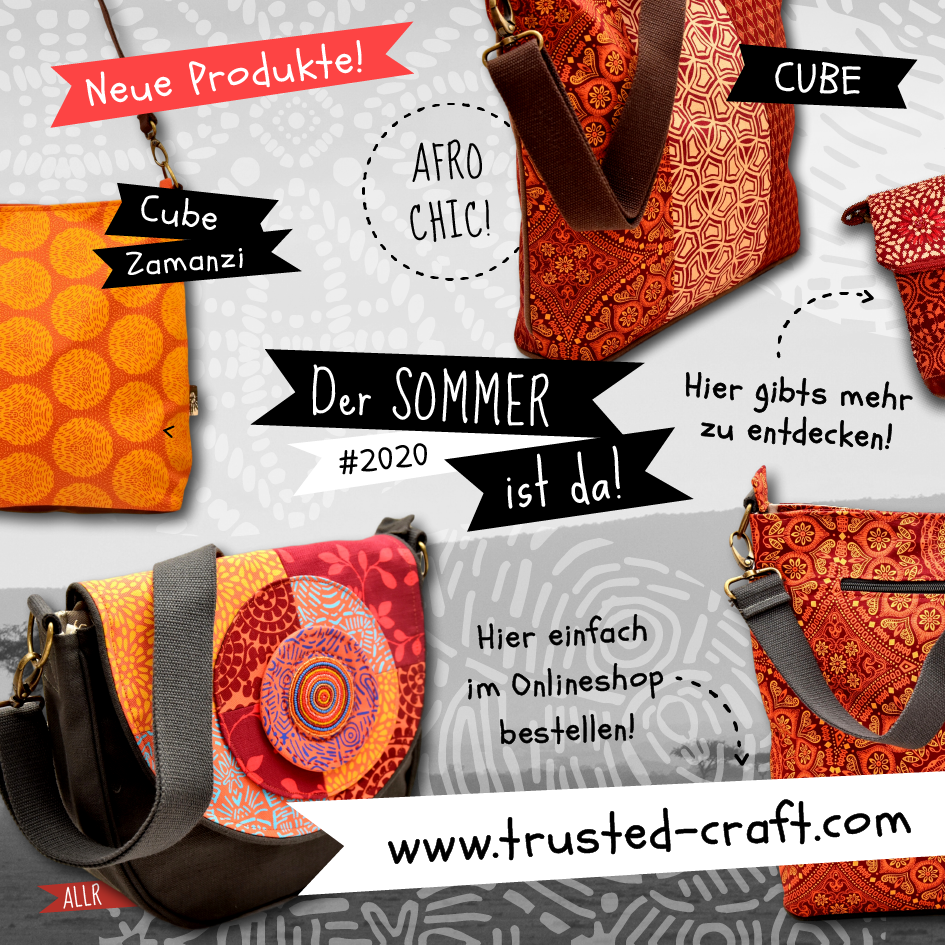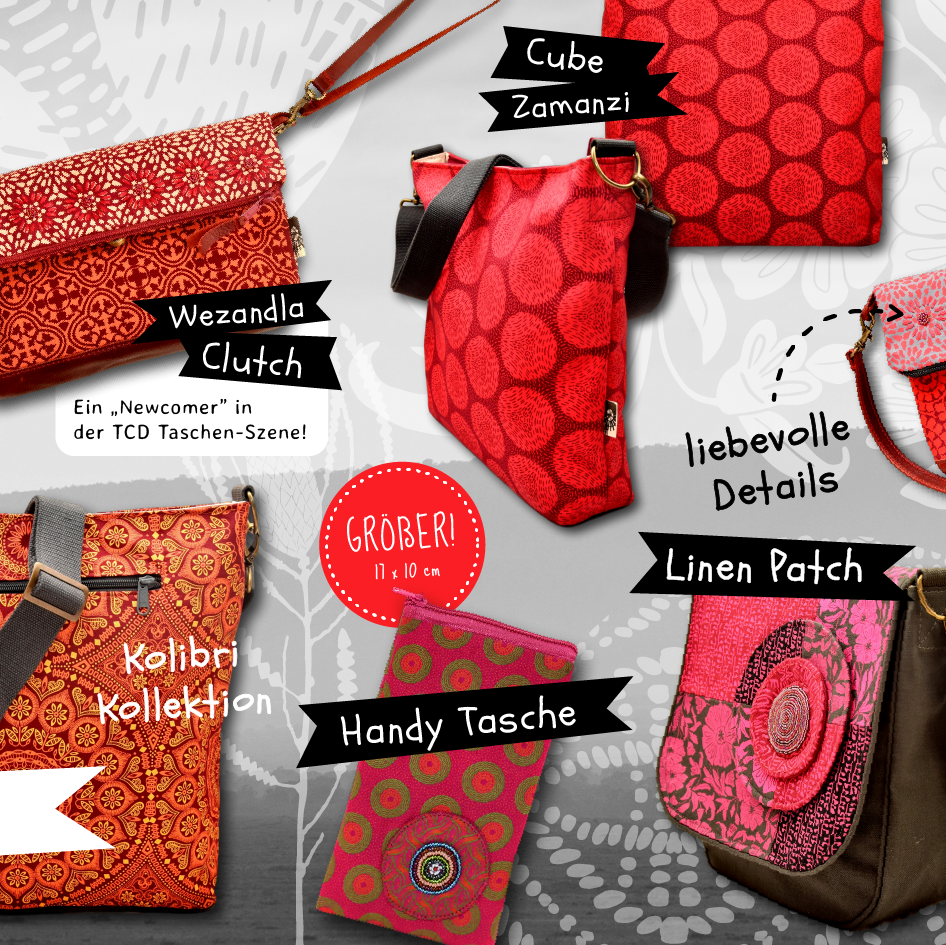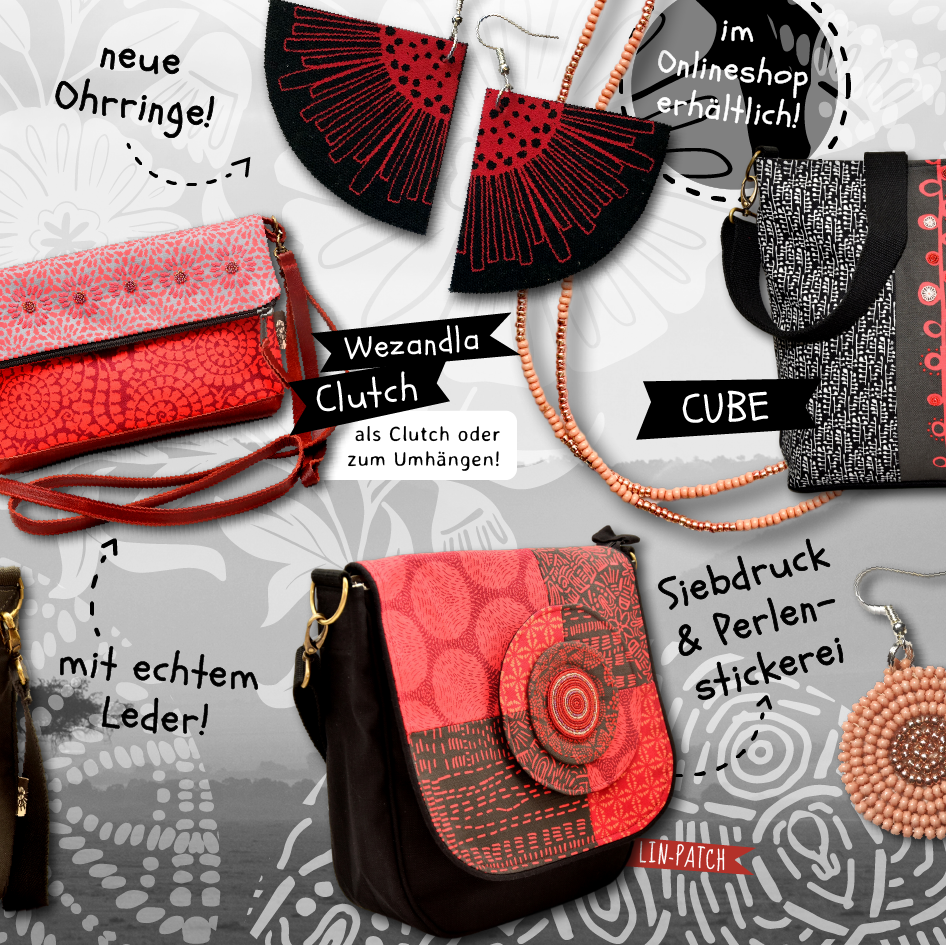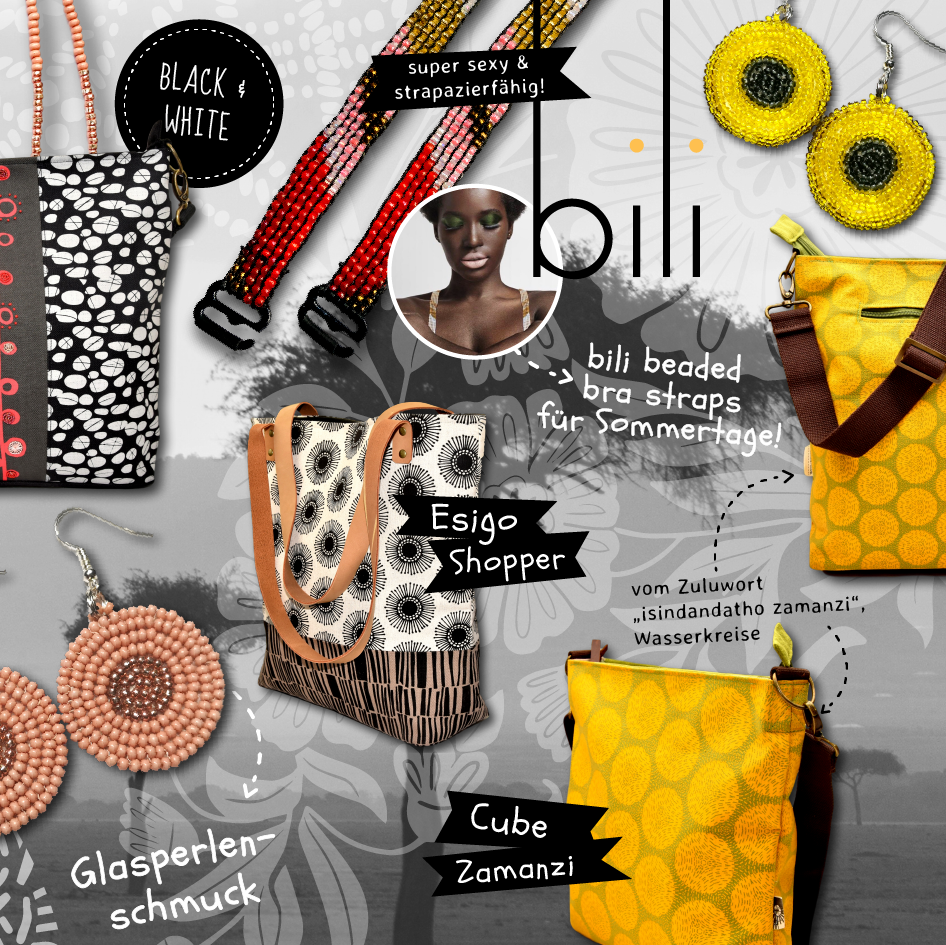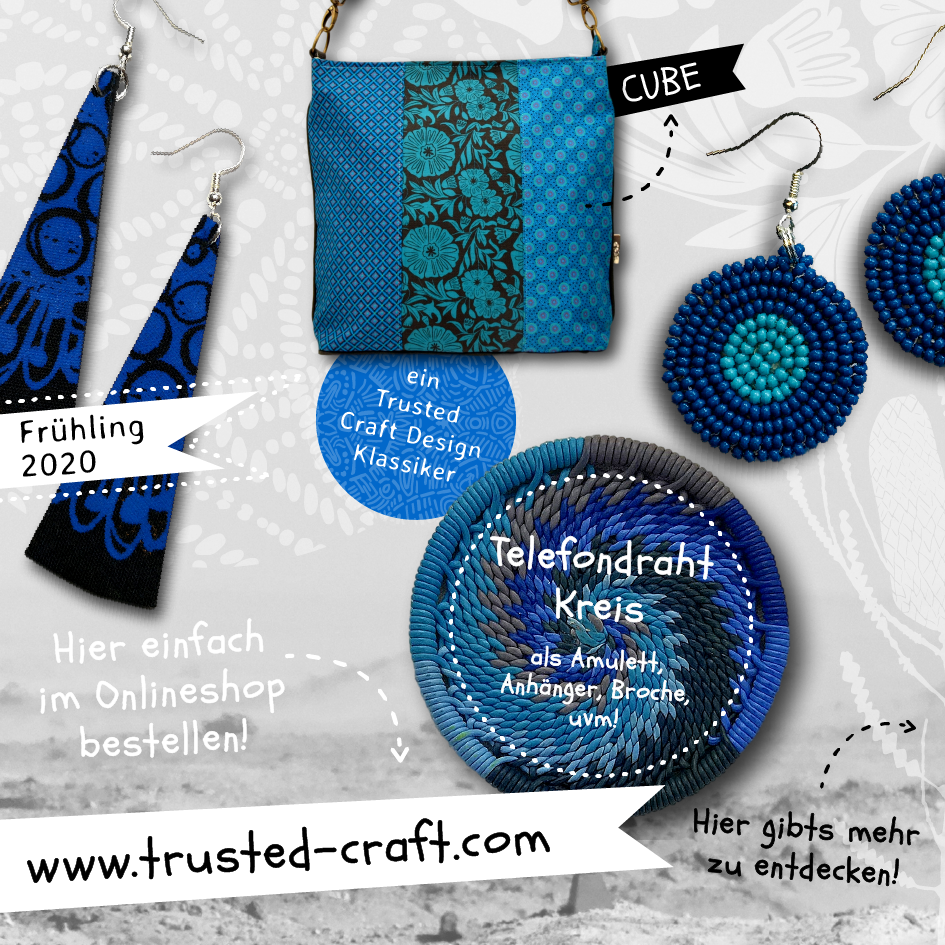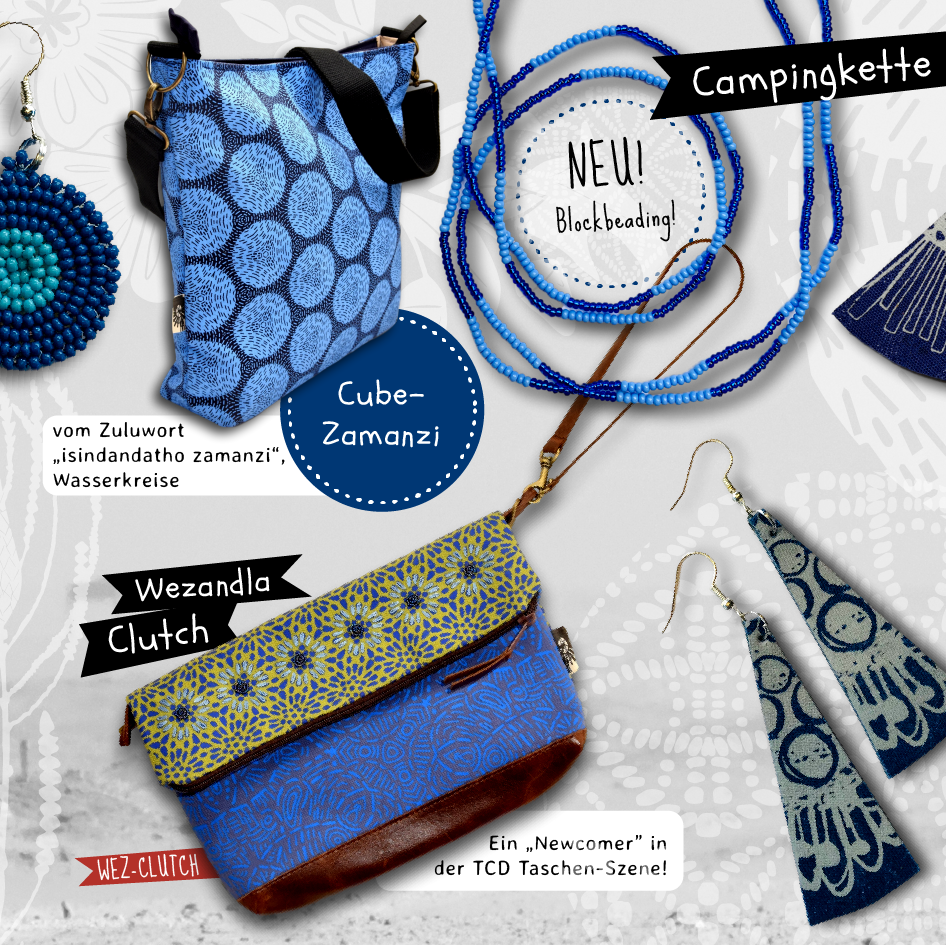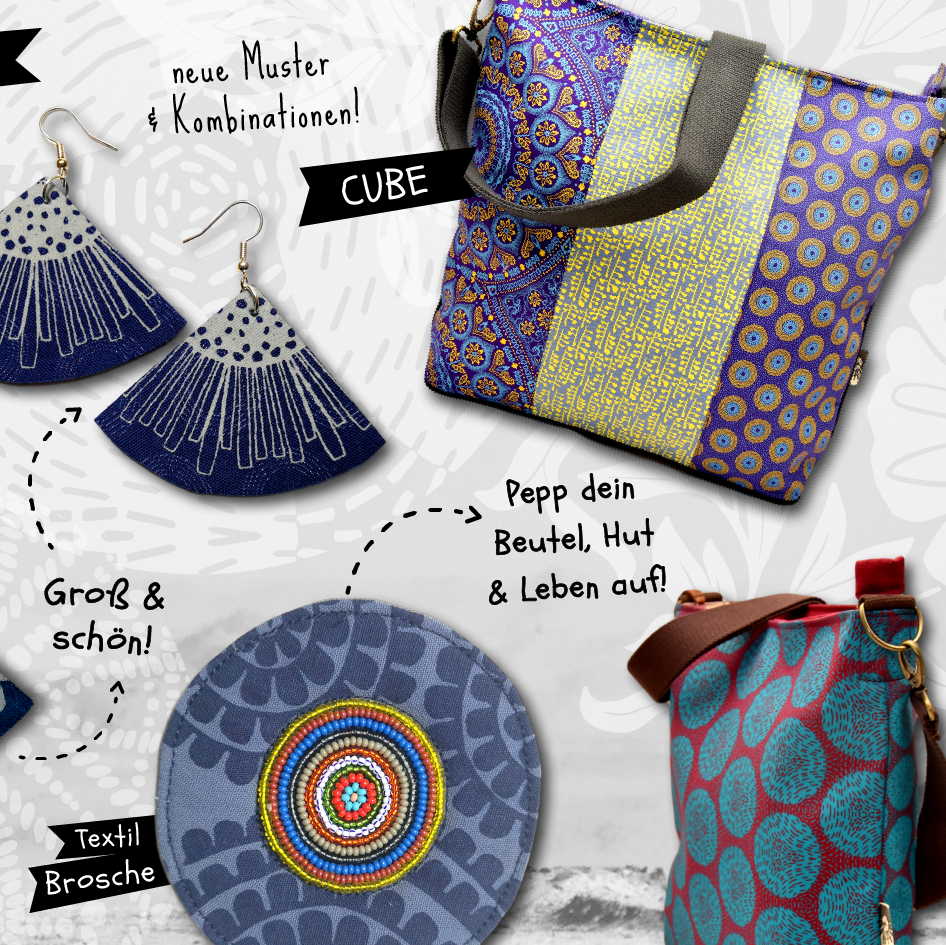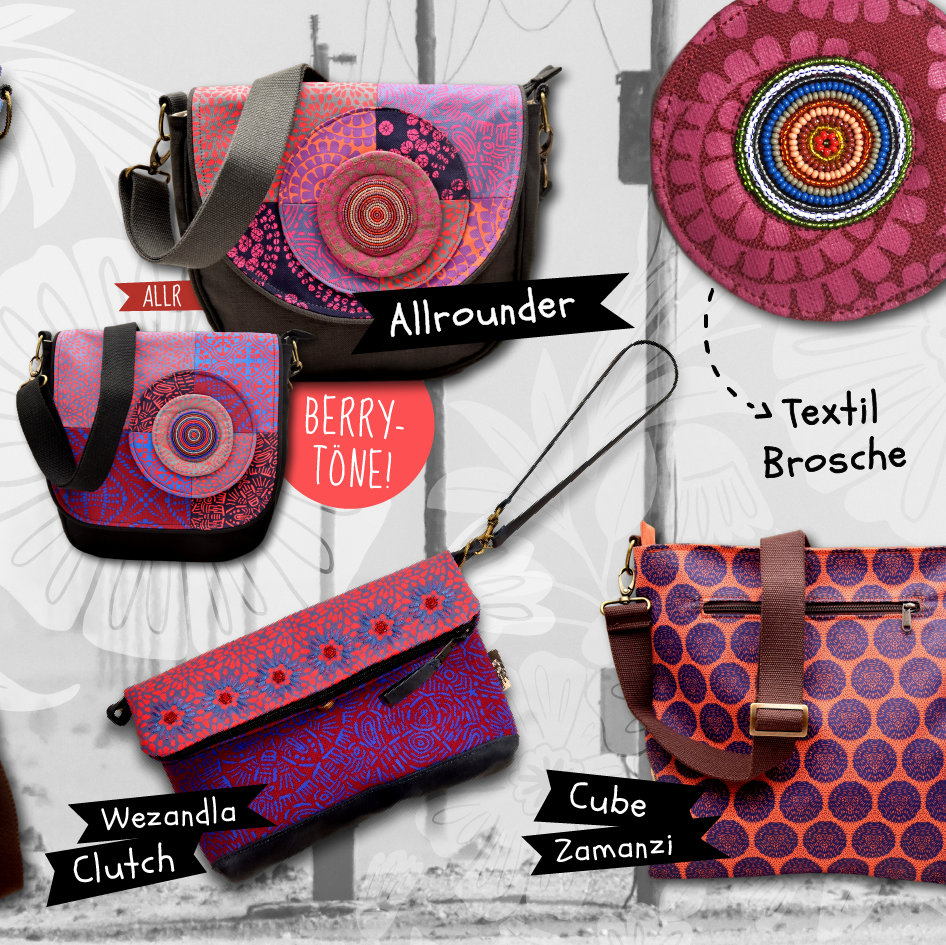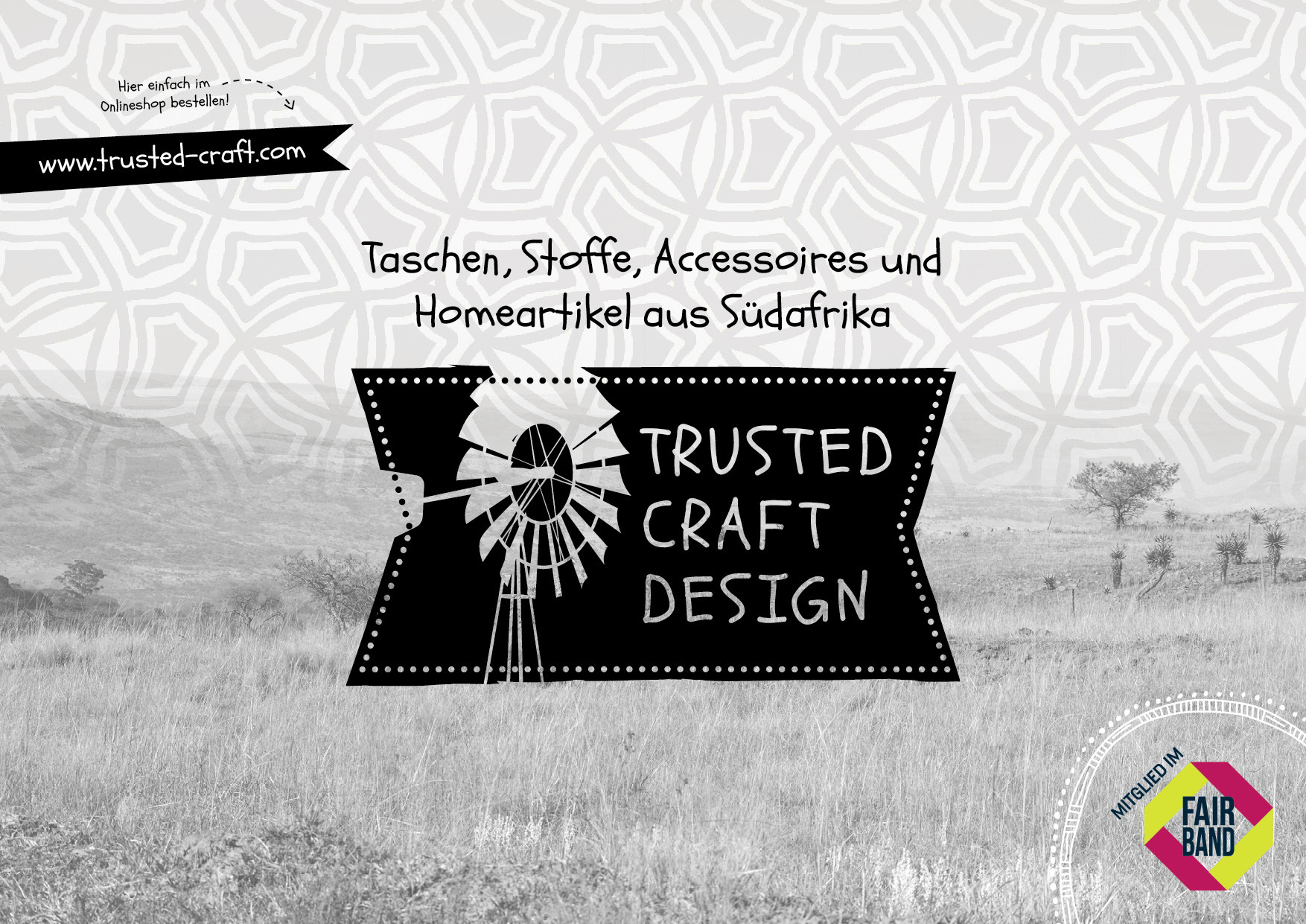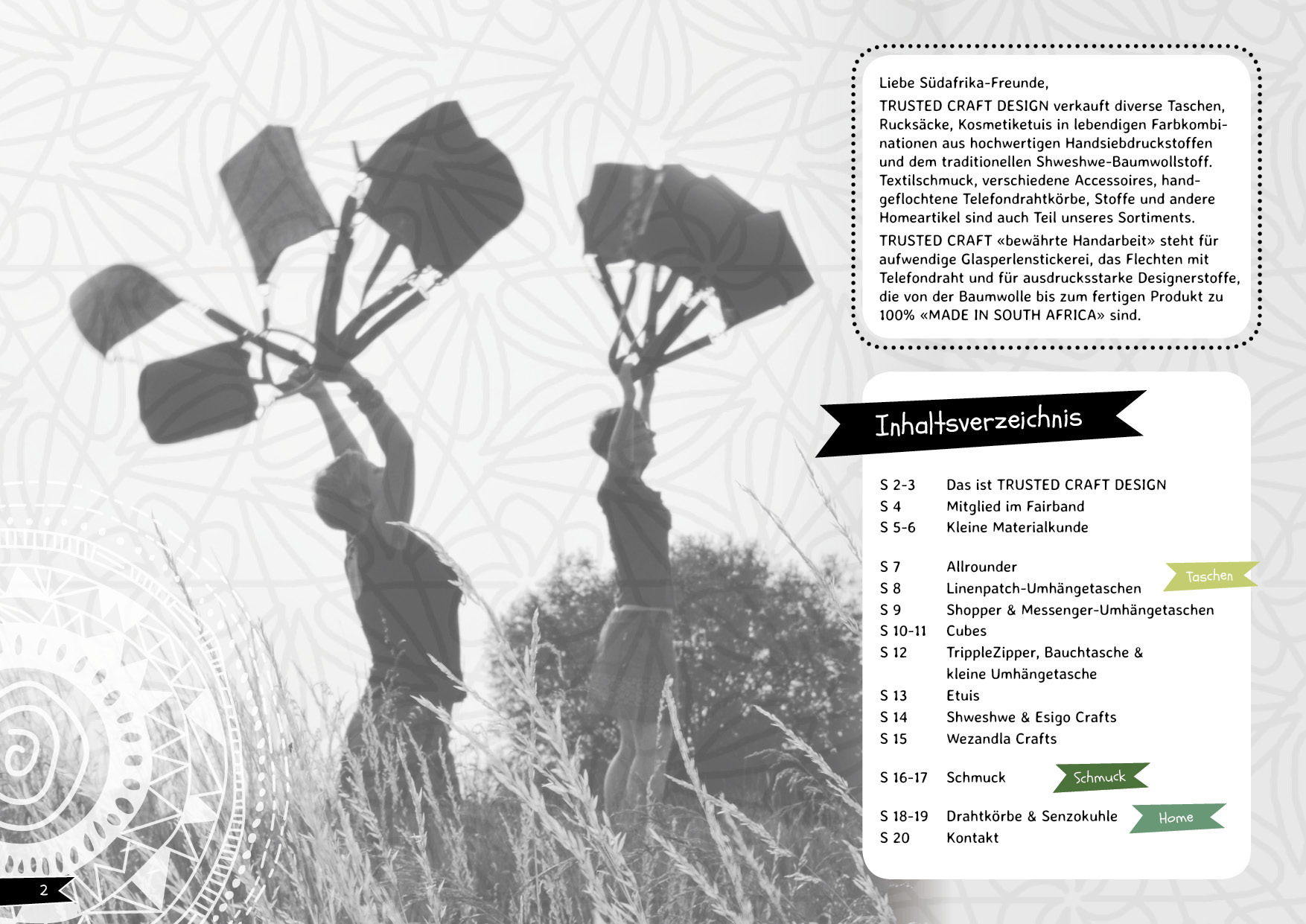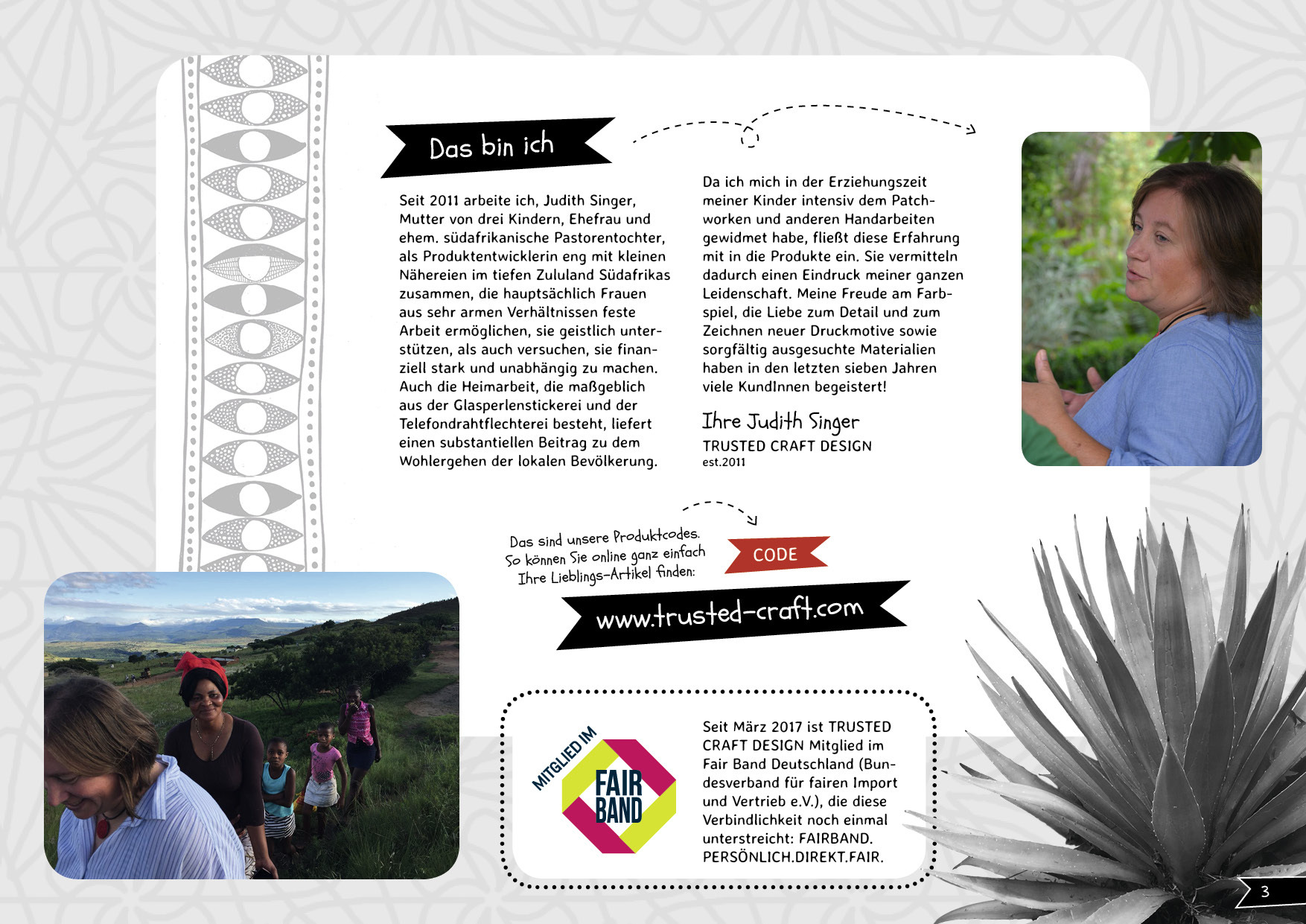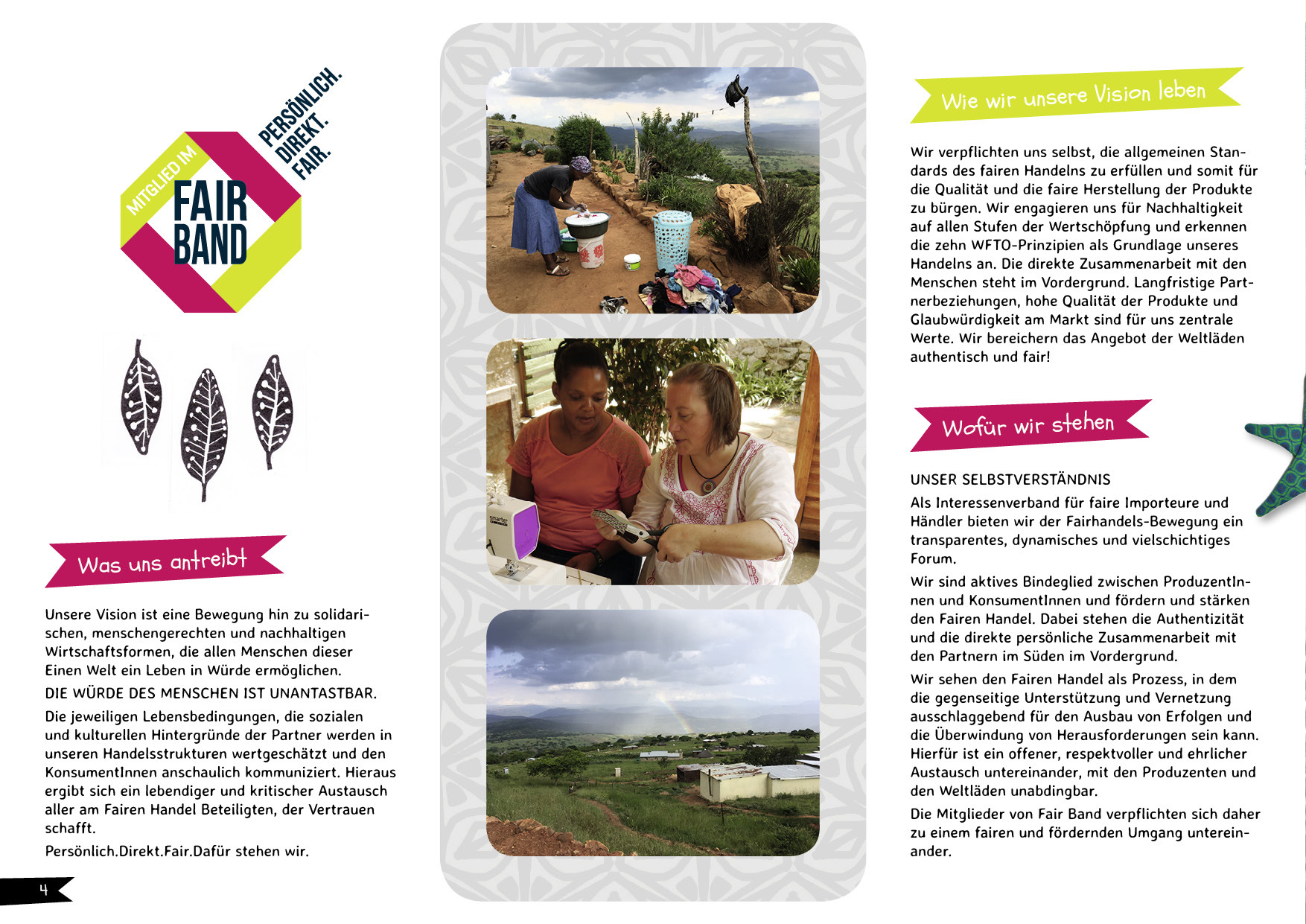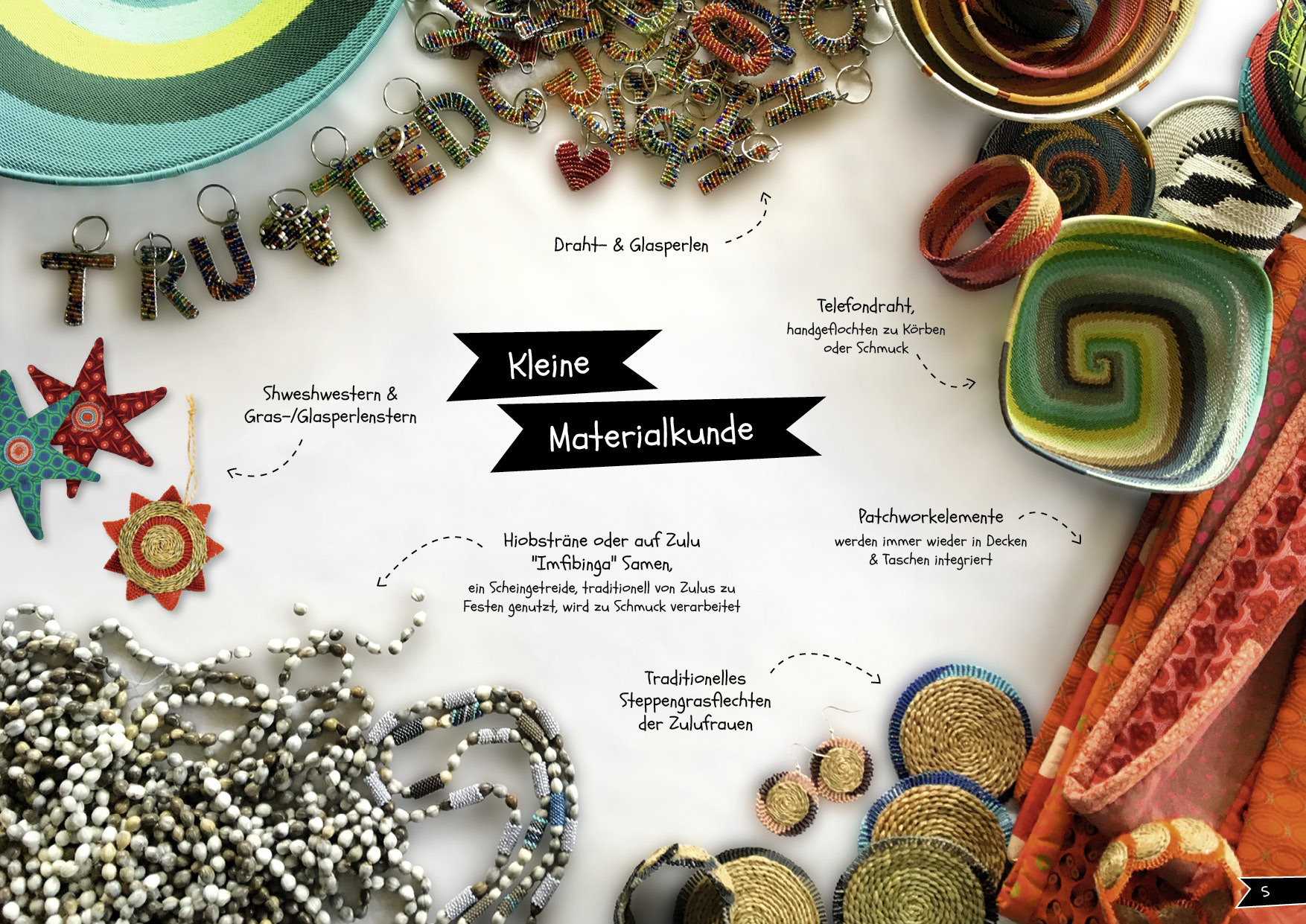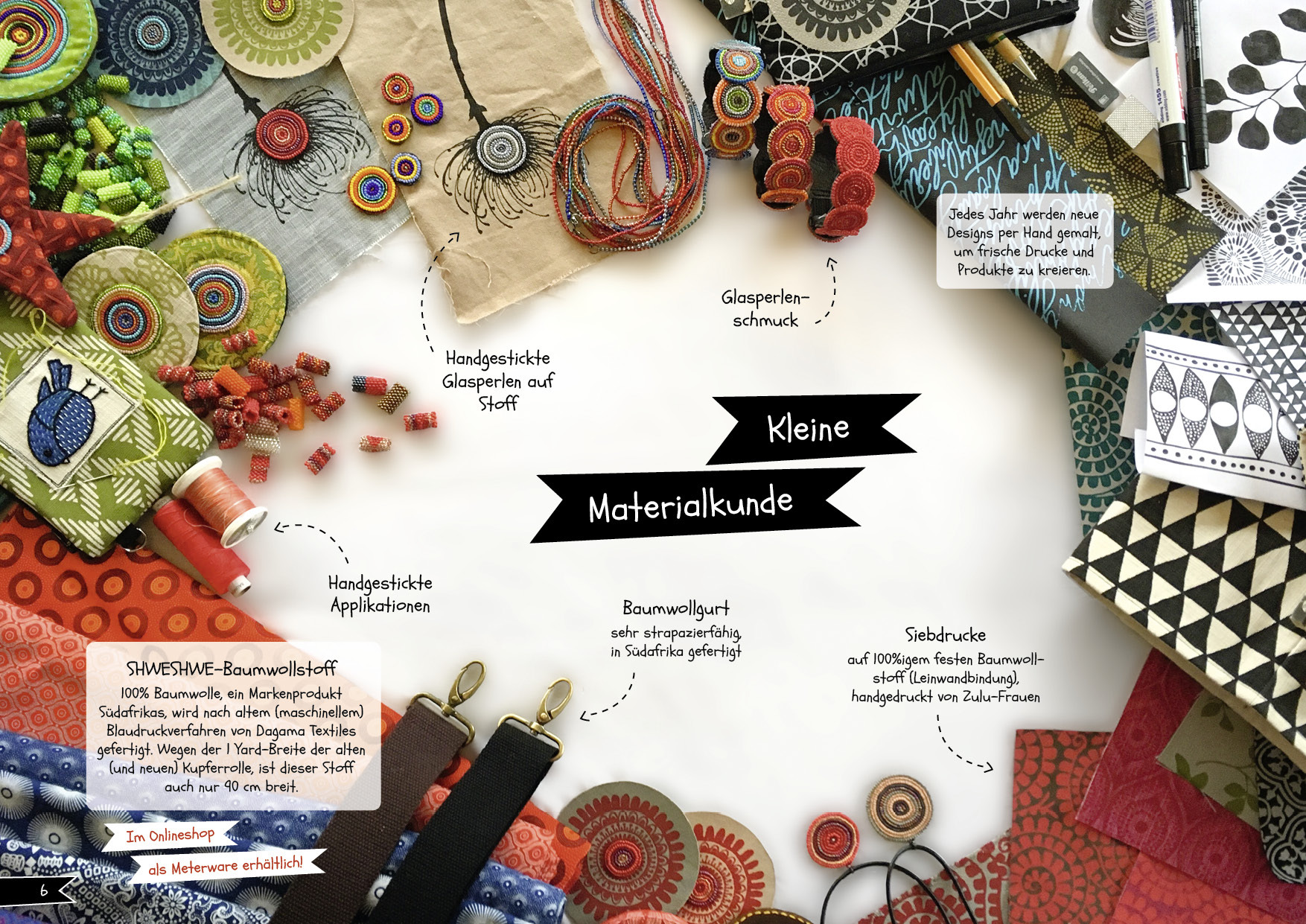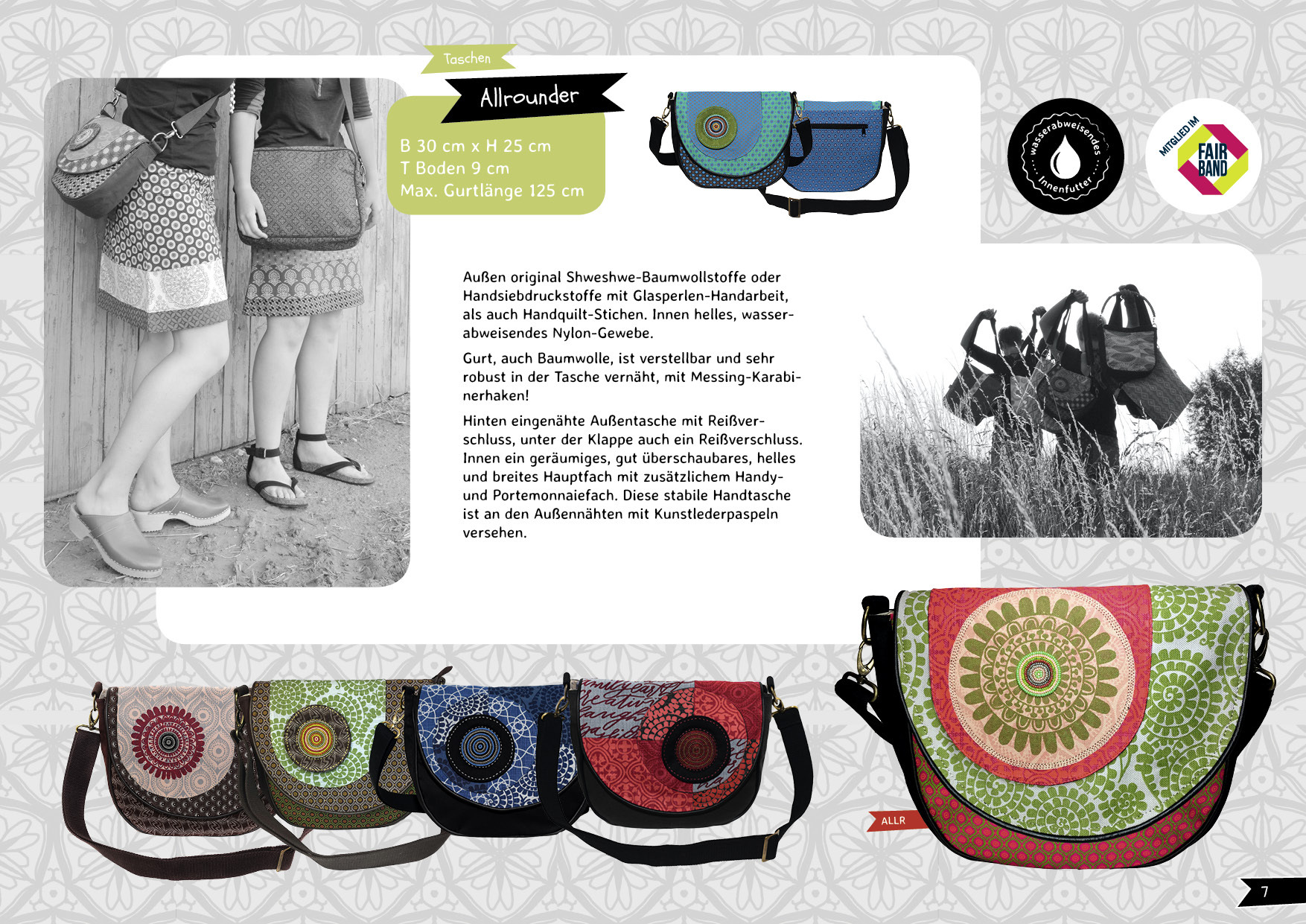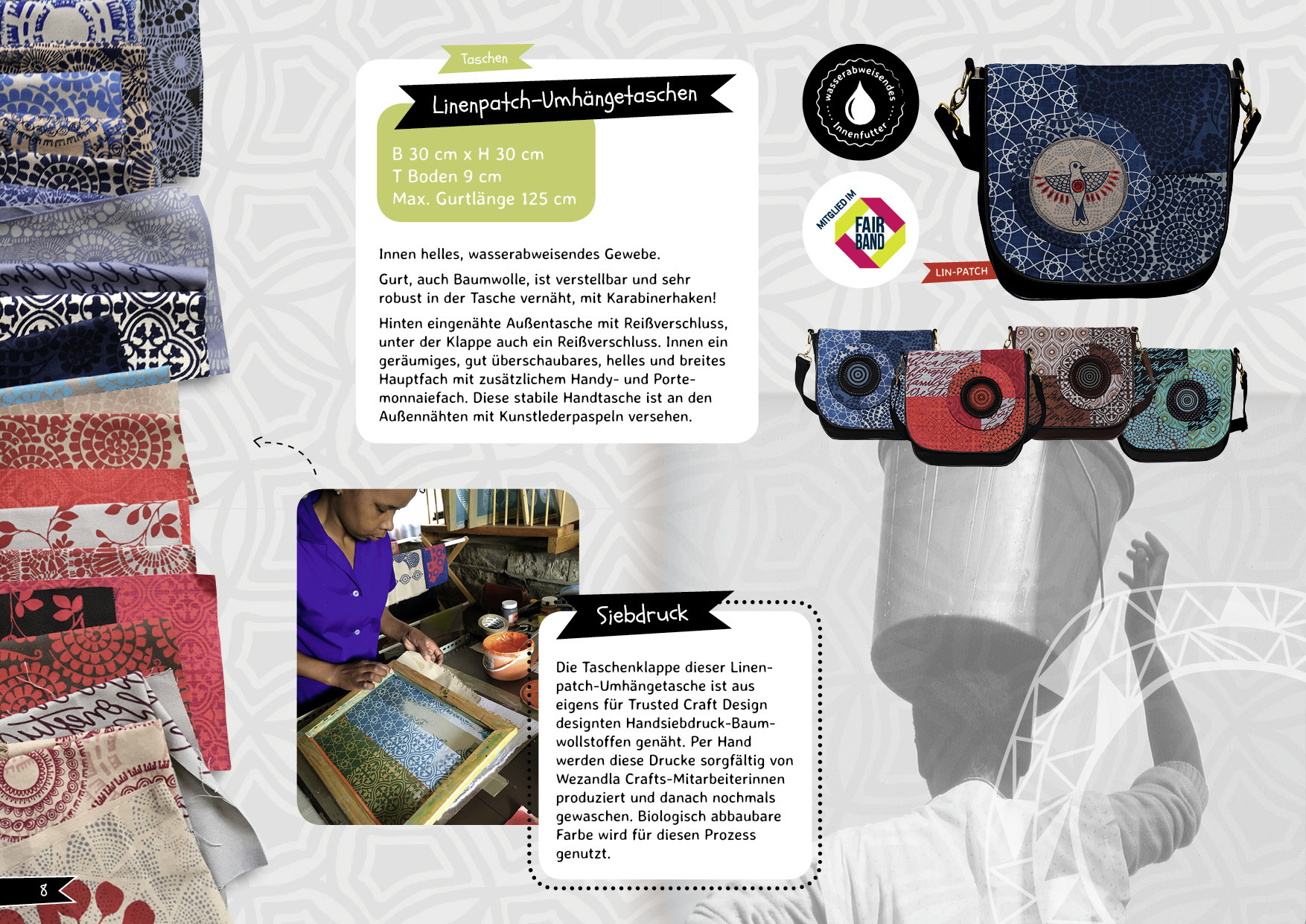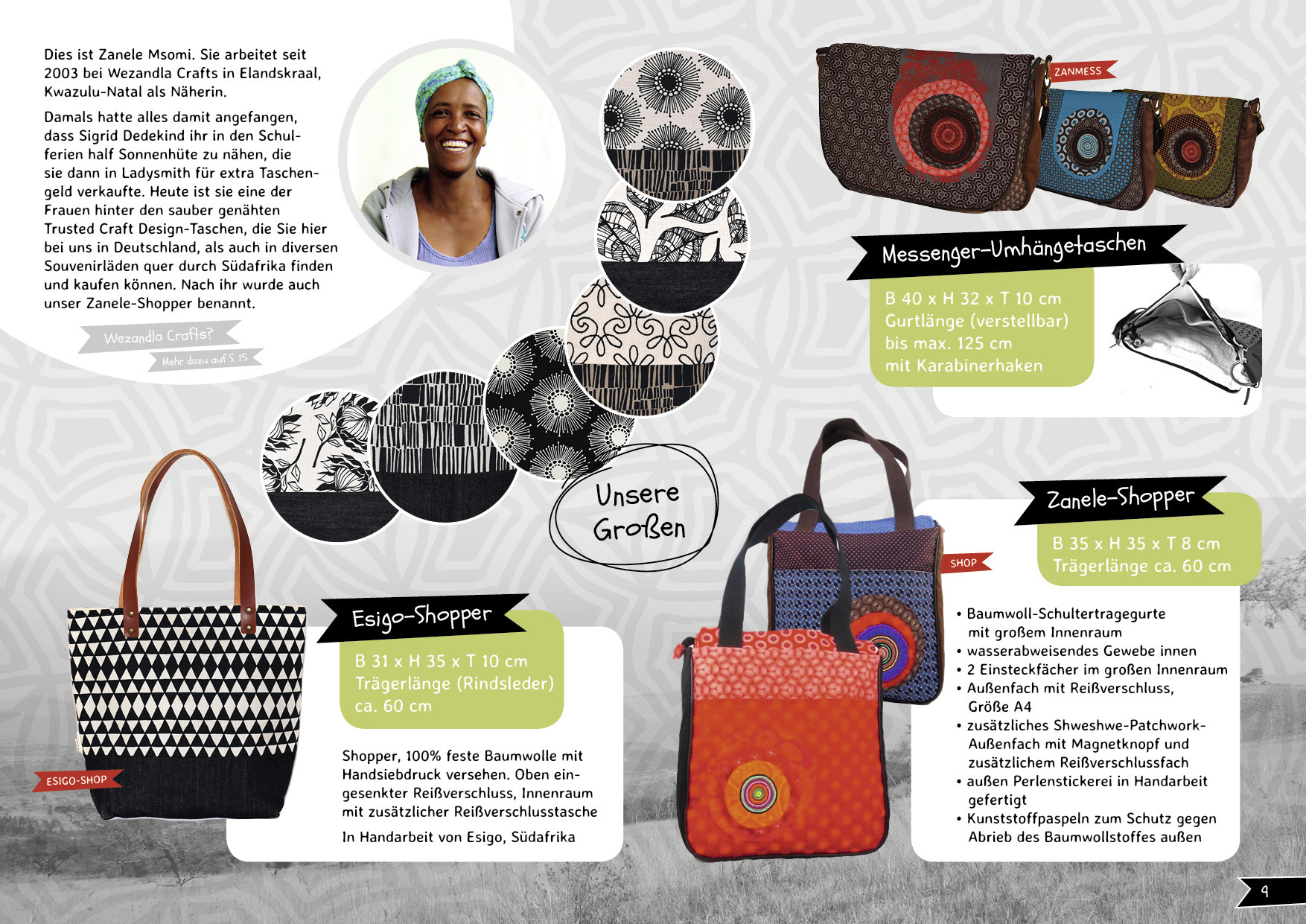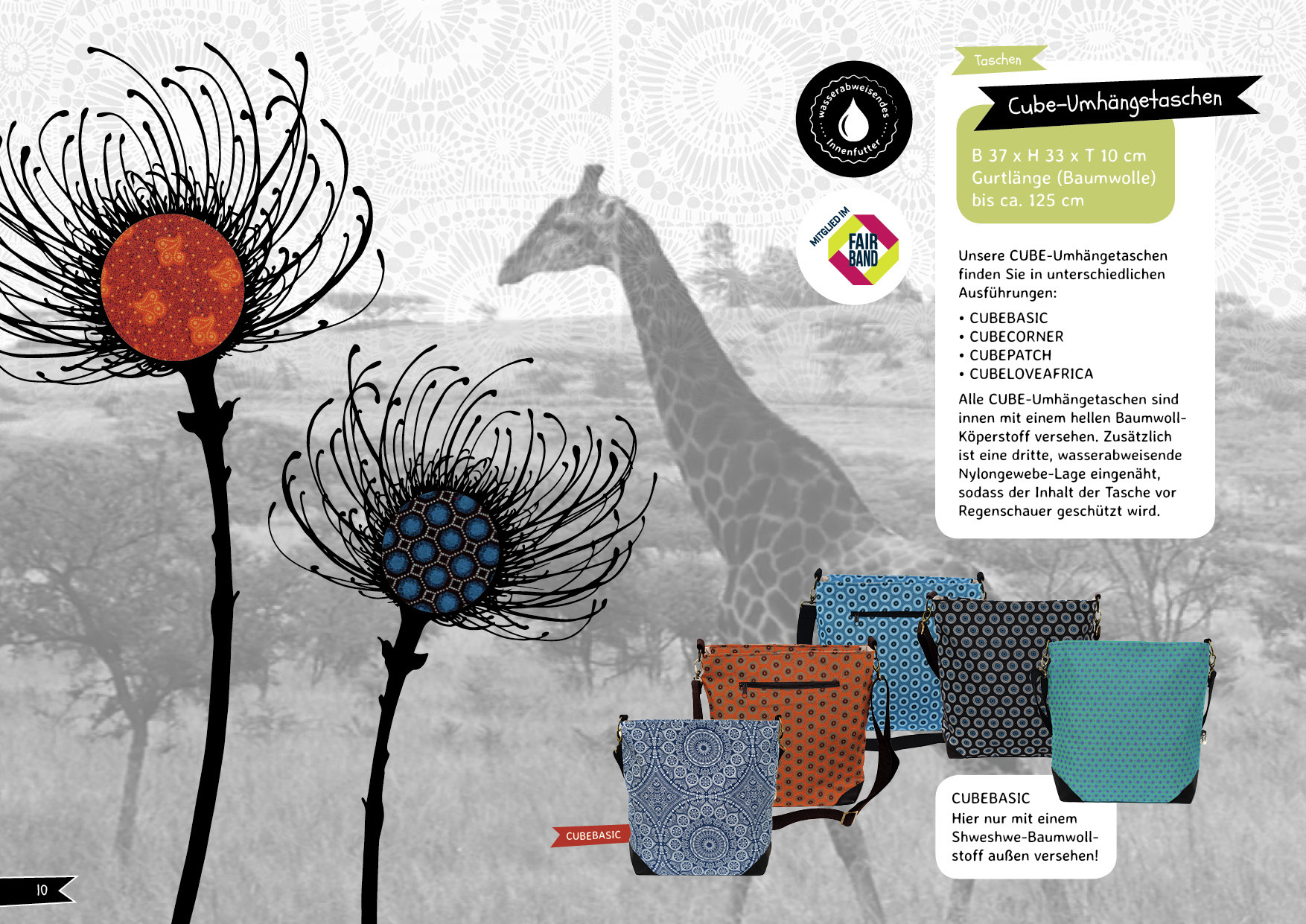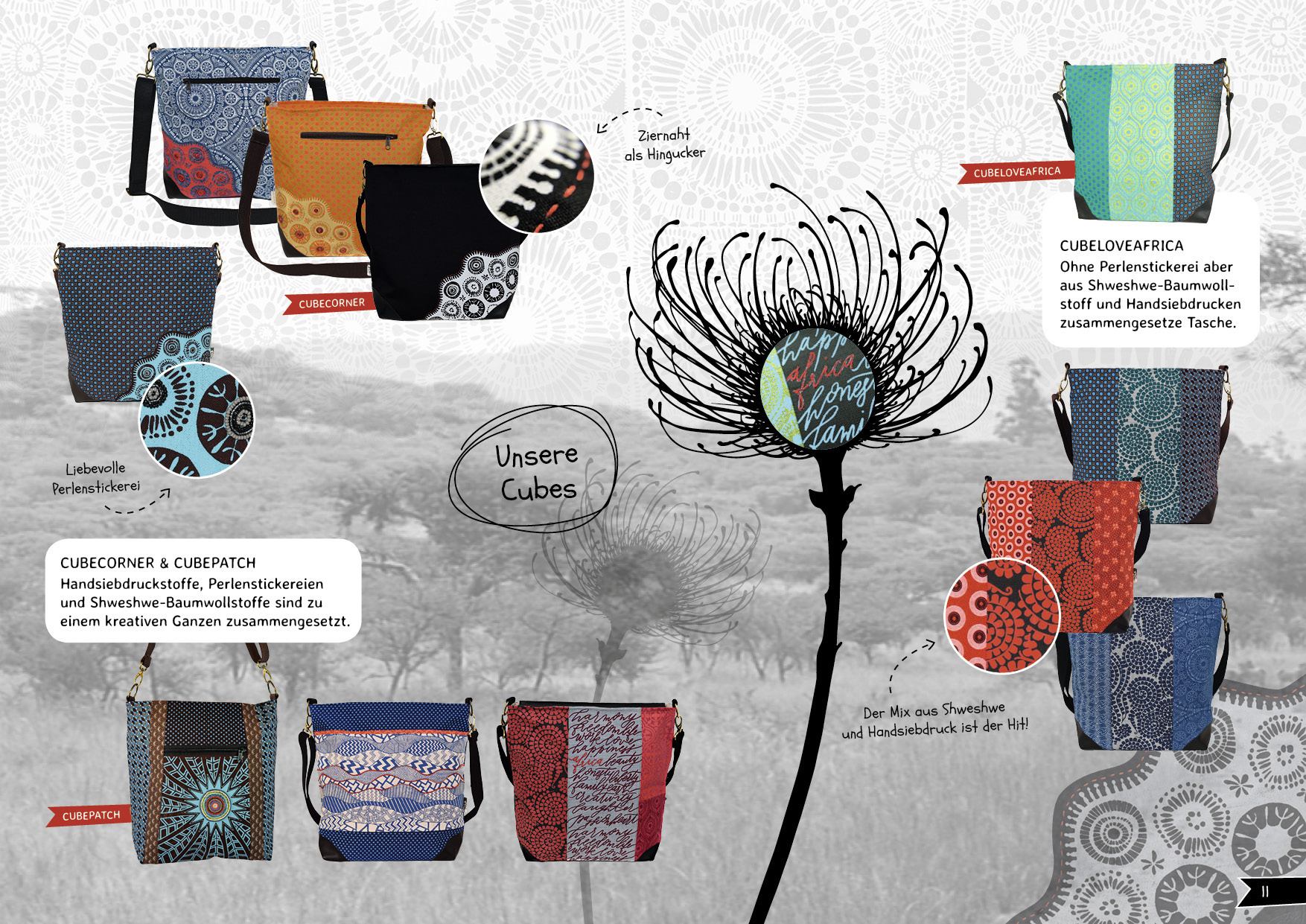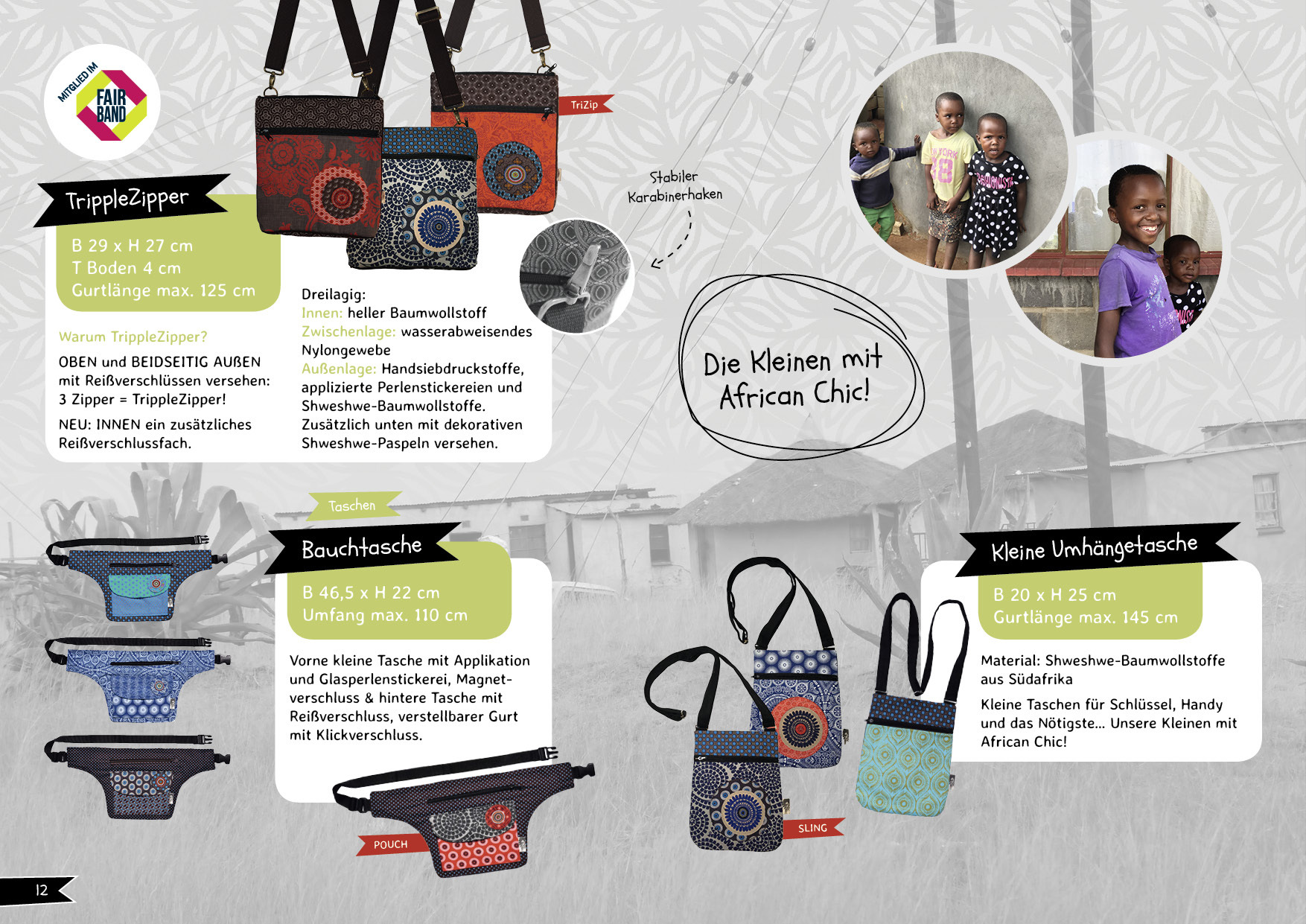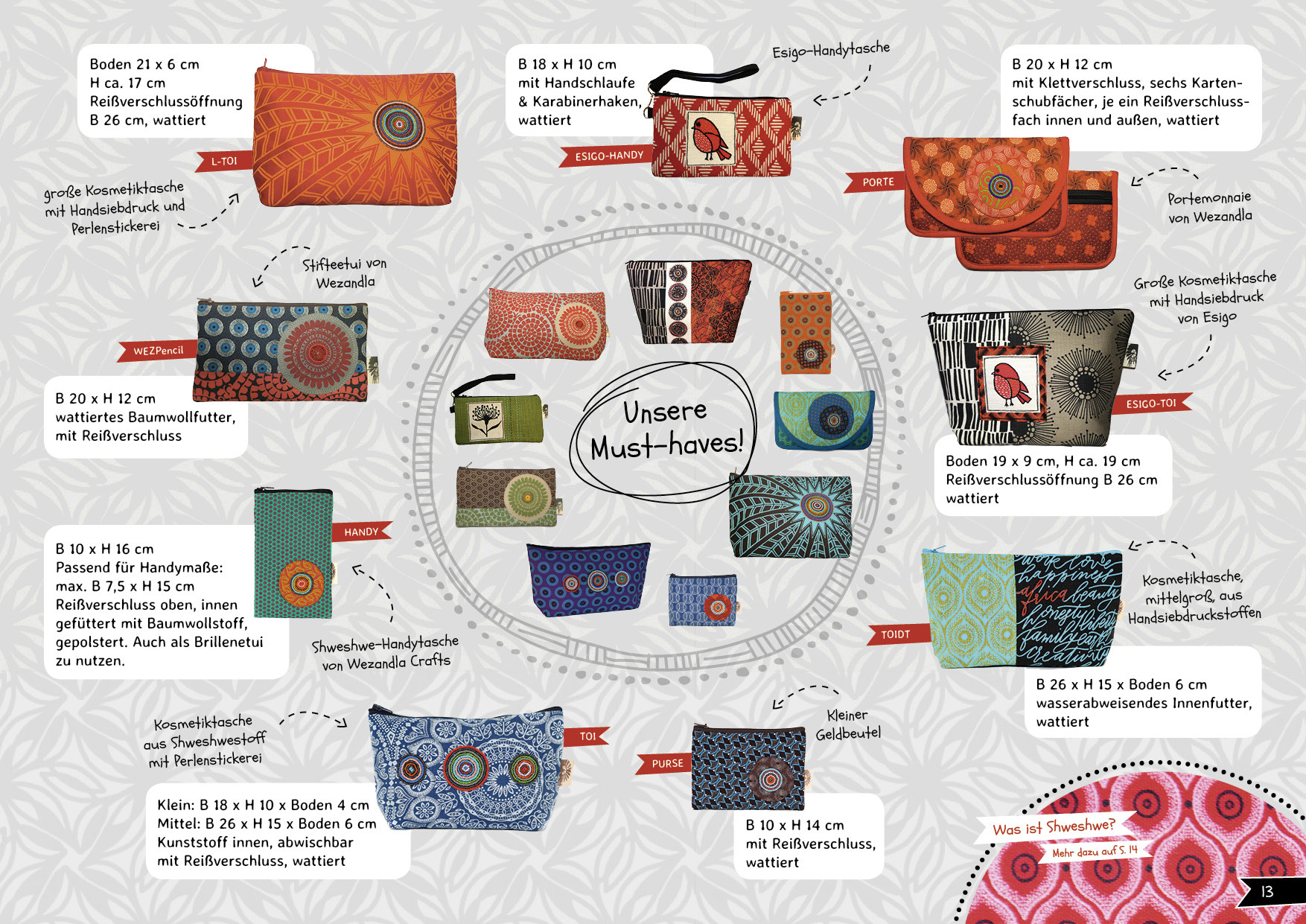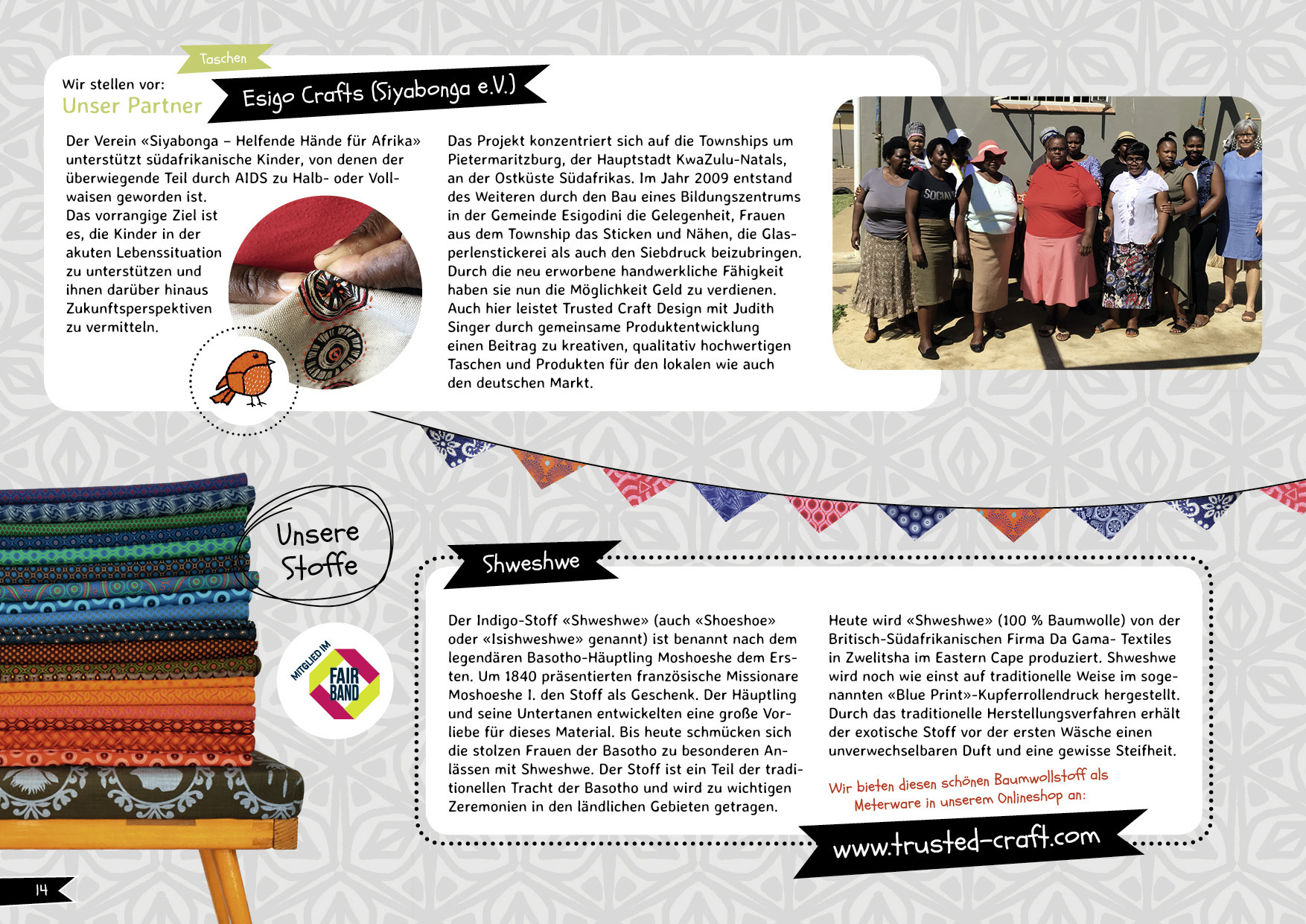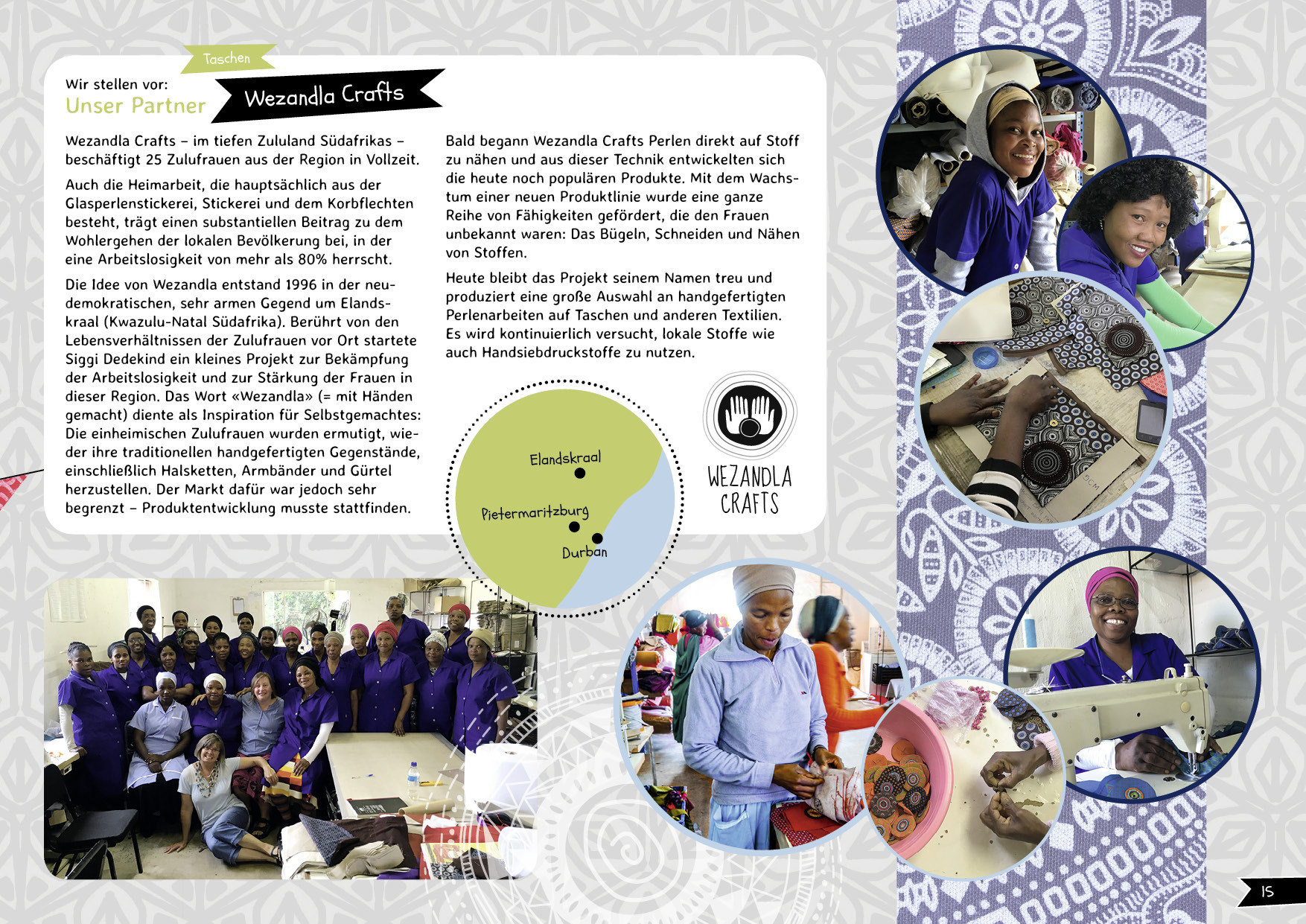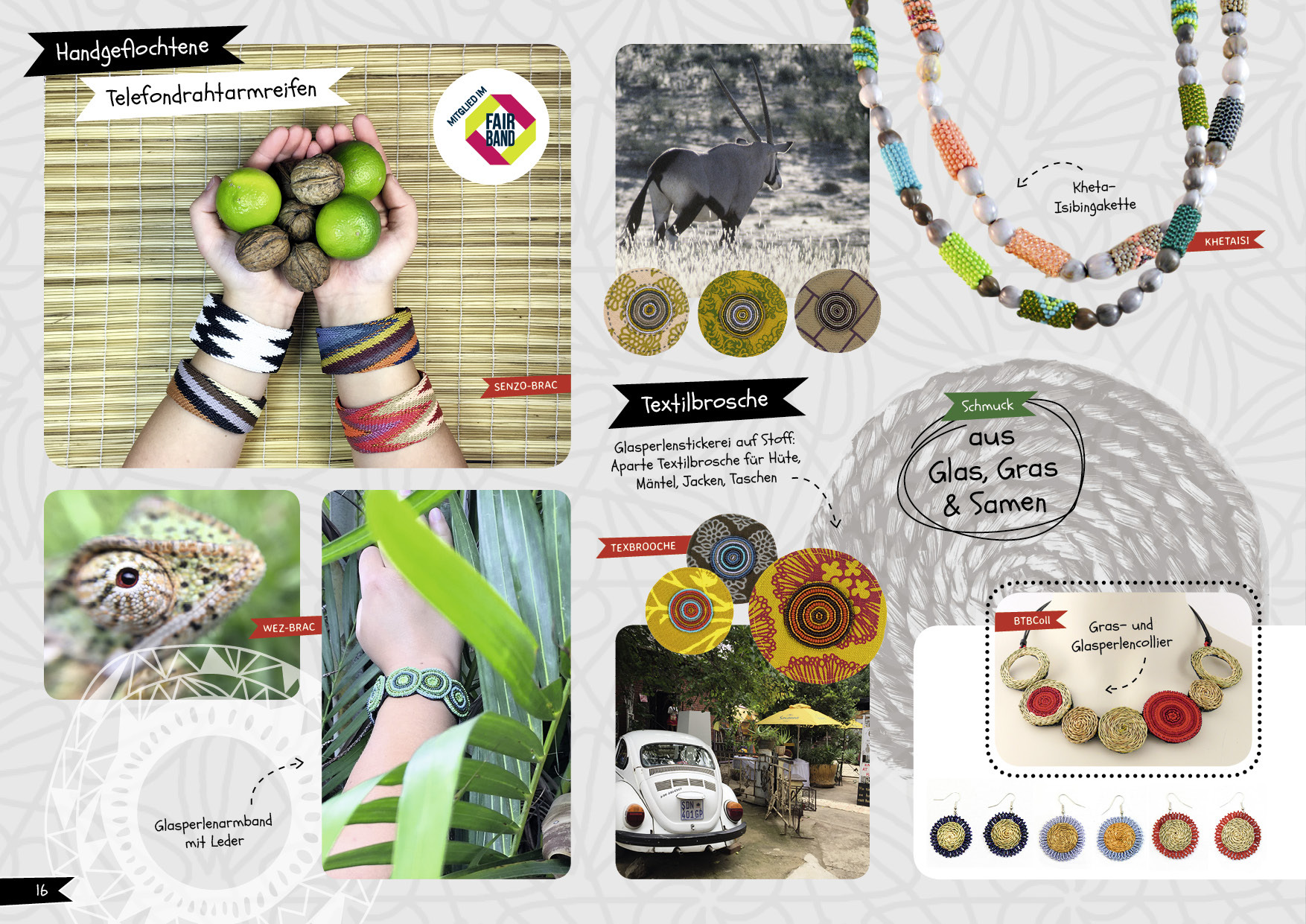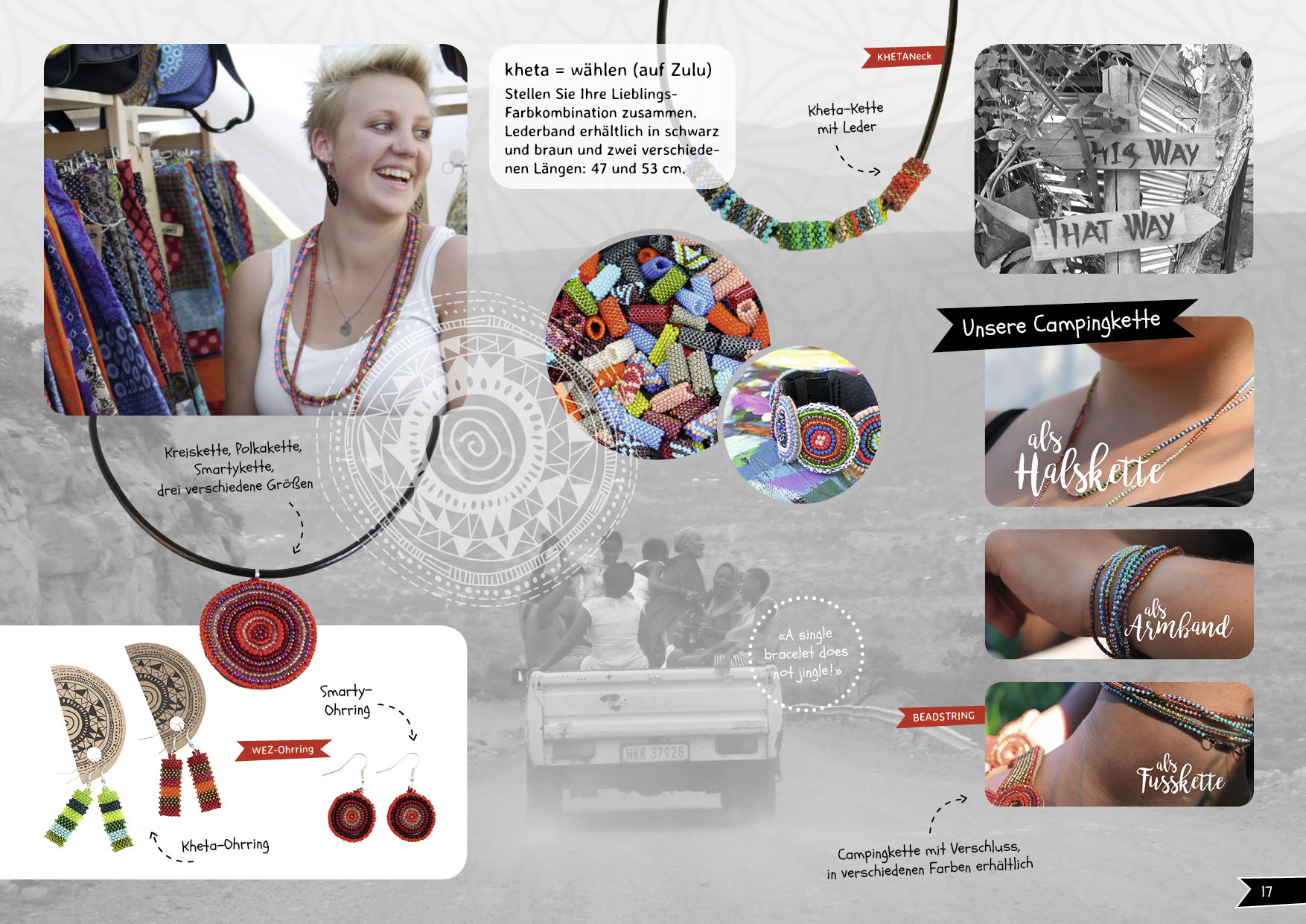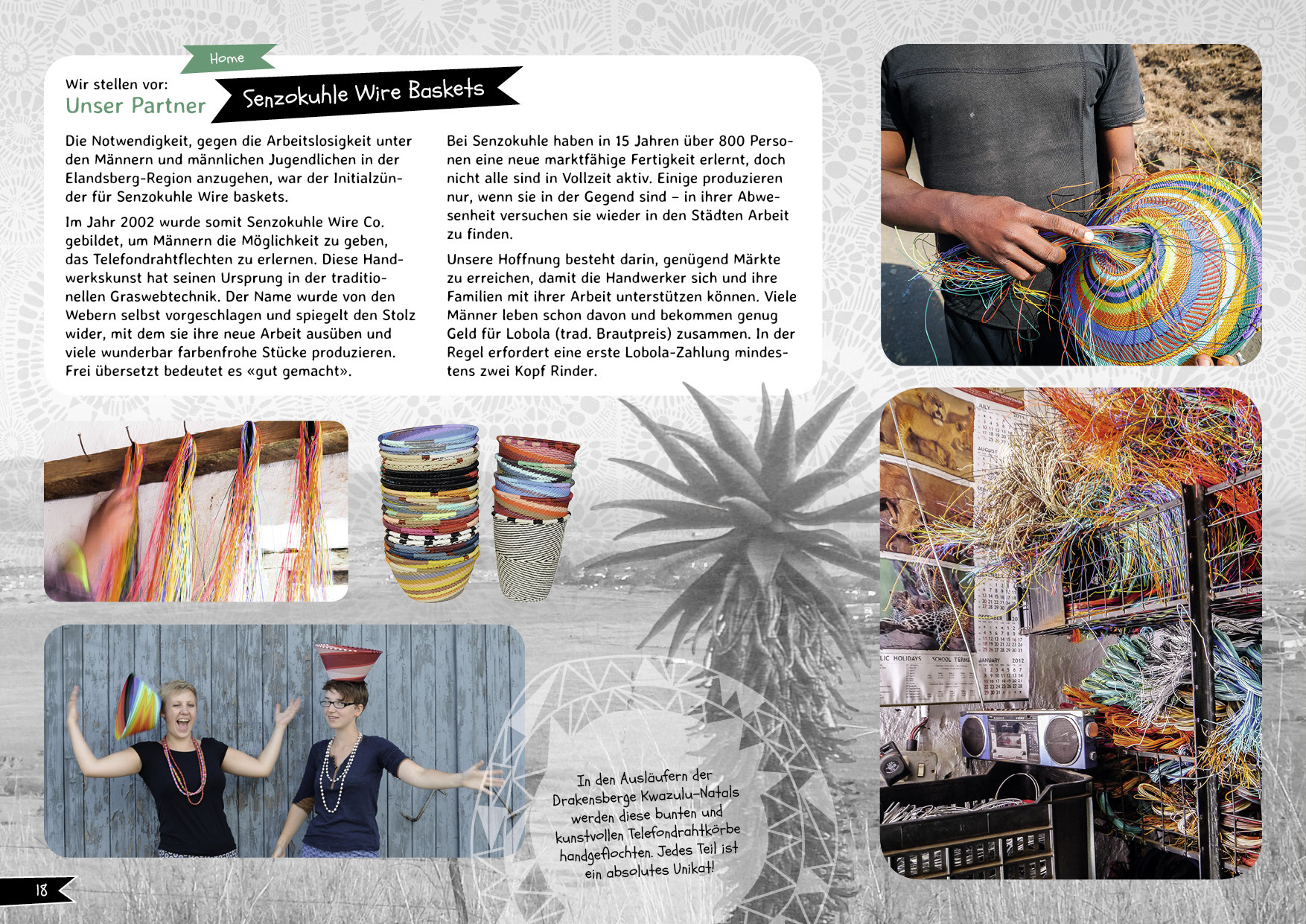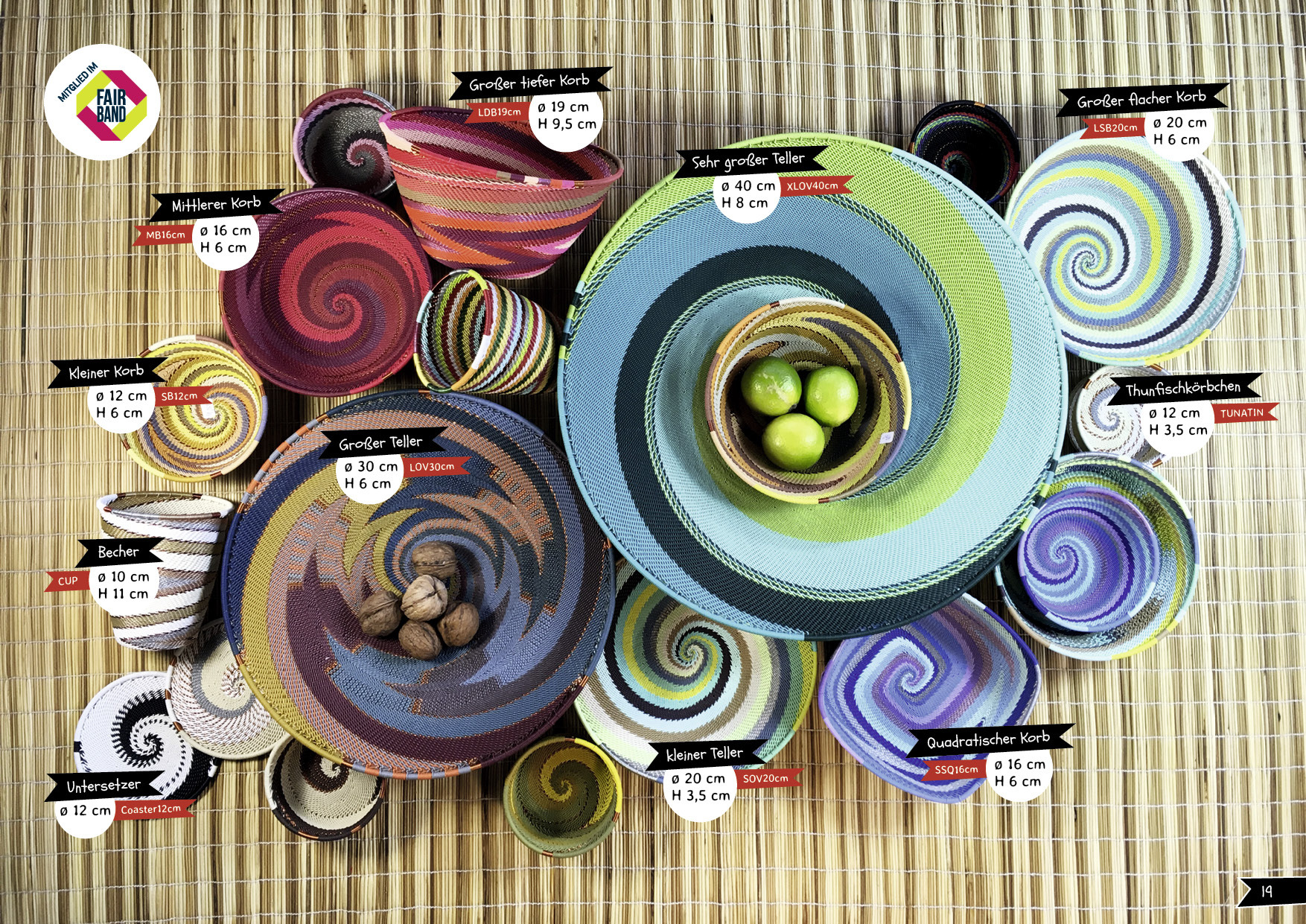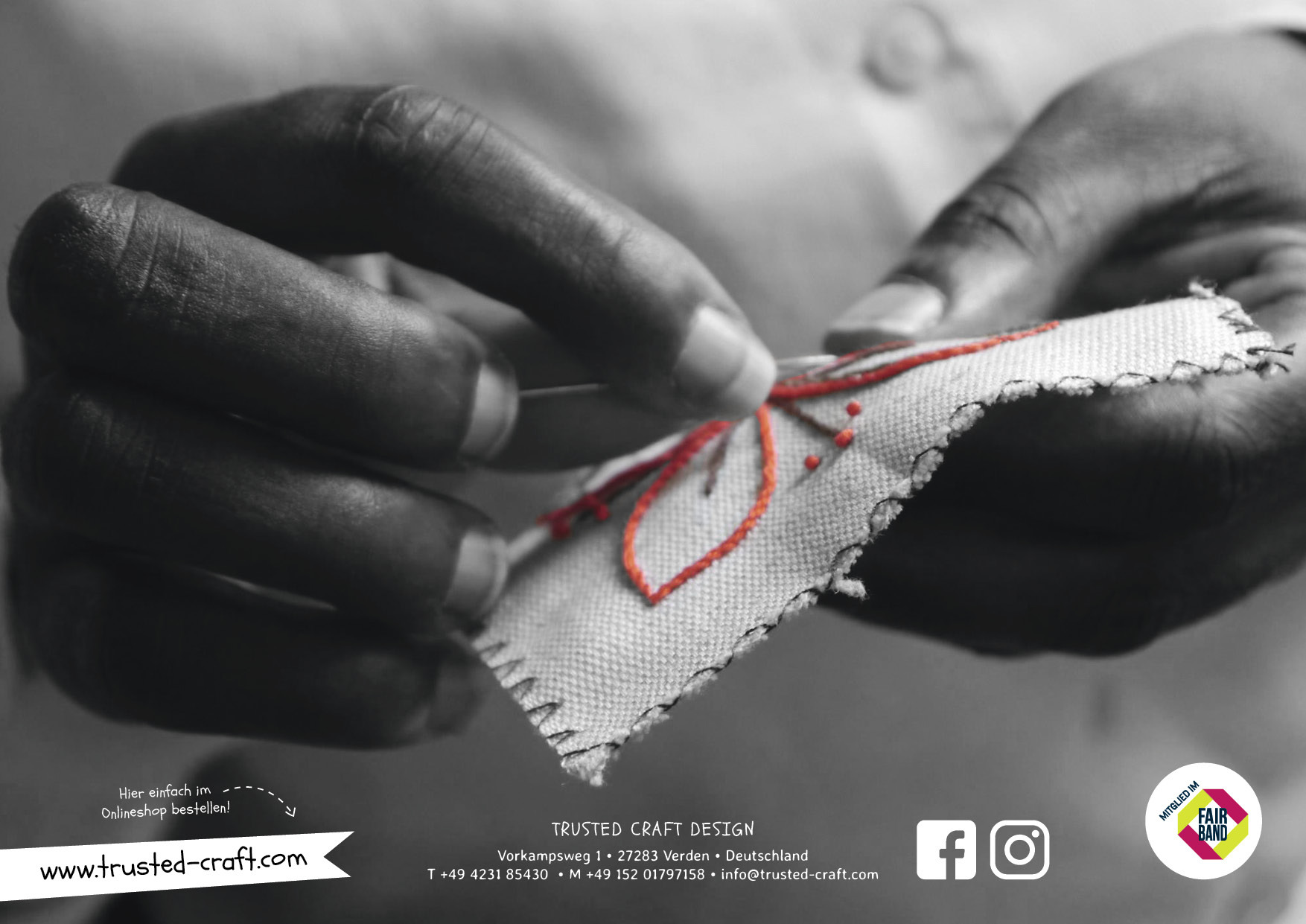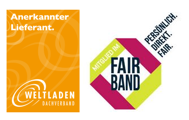South African fairtrade bags, accessories, Shwe... ABOUT
ABOUT
WEZANDLA CRAFTS
SEWING FACTORY IN KWAZULU-NATAL
Since 2011, TRUSTED CRAFT DESIGN has worked closely with a small sewing shop in the foothills of the Drakensberg mountains, located deep in Zululand. The unemployment rate in this region is almost 80%, making the work in the sewing factory (there are about 25 women employed there), and the work done at home, which mainly consists of glass beadwork and embroidery, a substantial contribution to the well-being of the local population. At Wezandla Crafts, child labor is explicitly forbidden and not tolerated, because the neighborhood children attend a school near the sewing factory.
Siggi Dedekind (Elandskraal, Kwazulu-Natal) and Judith Singer (Verden/Aller) have been working together weekly for several years to create new products that are “African Chic” for the local South African market, as well as the European, especially the German, market. They are very conscious of using local fabrics, particularly the original Shweshwe fabric from the company Dagama, as well as linoleic and hand screen printed fabrics from various smaller manufacturers. The fabrics are used to produce skirts, bags of all kinds, textile jewelry, and, soon. Together they strive to constantly produce higher quality products.
A serious interest in Africa as a country of production is concealed behind the label “TRUSTED CRAFT DESIGN.” This German-South African partnership produces a new and innovative creativity. The design, the love of handmade details, and the simplicity of the fabric color combinations merges the work of many to form the multicultural mix that the customers, especially the German ones, enjoy greatly!
What is Shweshwe?
Shweshwe is a 100% South African cotton fabric that is produced using traditional methods.
The indigo fabric “Shweshwe” (also known as “Shoeshoe” or “Isishweshwe”) is named after the legendary Basotho Chief Moshoeshe the First. In 1840, French missionaries presented Moshoeshe I with this material as a gift. The chief and his subjects developed a great fondness for this material. To date, the proud women of Basotho clothe themselves in Shweshwe for special occasions. The fabric is part of the traditional costumes of the Basotho and is carried to important ceremonies in rural areas.
Today, a British-South African Company called Da Gama Textiles, which has the sole production rights, produces “Shweshwe” in Zwelitsha in South Africa’s Eastern Cape. Shweshwe is still produced in the traditional way using the so-called “Blue Print” copper-fed printing method. This exotic material has a distinctive fragrance and stiffness before the first wash. These properties are due to the traditional production process. After the first wash, the beautiful cotton fabric is soft and odorless. Recently, Shweshwe has become increasingly popular with western fashion designers.
Shop Shweshwe HERE.
wire work in South Africa
Die Geschichte des Telefondrahtflechtens in den Ausläufern der Drakensberge Südafrikas
Die Zulu-Bevölkerung der Elandsberg Farm, etwa 50 km südlich von Dundee, im nördlichen Teil von Kwazulu-Natal Südafrikas, lebt von der Subsistenzwirtschaft, von dem Geld, das von Wanderarbeitern, die noch in der Lage sind in der Stadt Arbeit zu finden, nach Hause geschickt wird und von staatlichen Zuschüssen und Renten. Die Arbeitslosigkeit in dieser, vor allem von AIDS stark betroffenen Gegend, liegt bei knapp 80%. Die Armut und die Hoffnungslosigkeit der örtlichen Gemeinschaft waren der Motivator dort lokal altes Kunsthandwerk, wie das Flechten von Körben und die Perlenstickerei neu aufleben zu lassen, um somit Arbeit zu schaffen.
Die Idee für Wezandla Crafts kam so 1996 zustande. Das Zulu-Wort Wezandla, das heißt "mit den Händen". Es sollte die von Hand gefertigten Produkte symbolisieren, aber auch das Erreichen und Helfen eines anderen mit eigenen Händen. Die meisten Menschen, die erreicht wurden, waren Frauen. Die Idee, ihre traditionellen Fähigkeiten zu verwenden, um Handwerk zu Hause in ihrer Freizeit herzustellen, kam zustande. Der Schwerpunkt von Wezandla war die örtlichen Frauen die Gelegenheit zu geben in Beadwork-Fähigkeiten zu wachsen, aber auch das Nähen zu erlernen.
Mit der Zeit wurde die Notwendigkeit, die Arbeitslosigkeit unter den Männern und den männlichen Jugendlichen anzugehen, immer größer. Eine Gelegenheit entstand im Jahr 2002, um die Fähigkeit des Telefondrahtflechtens zu erlernen, das seinen Ursprung in traditionellen Graswebtechniken hat und den Männern eine Handwerkskunst zur Verfügung stellen würde. Senzokuhle Wire Co. wurde gebildet. Der Name wurde von den Webern selbst vorgeschlagen und spiegelt den Stolz wider, den sie bei der Verwendung ihrer neu gefundenen Fähigkeit haben, um viele wunderbar-farbenfrohe Stücke zu produzieren. Grob übersetzt bedeutet es "gut gemacht".
Bei Senzokuhle haben nach 15 Jahren über 800 Personen eine neue marktfähige Fertigkeit gelernt. Nicht alle sind Vollzeit aktiv. Einige produzieren nur, währenddem sie in der Gegend sind, um dann wieder in den Städten zu versuchen, Arbeit zu finden. Unsere Hoffnung ist es, genügend Märkte zu bekommen, damit die Handwerker sich und ihre Familien mit ihrem Handwerk unterstützen können. Viele können schon davon leben, und genug Geld zusammen bekommen für lobola (Braut Preis). In der Regel erfordert eine erste lobola-Zahlung mindestens zwei Kopf Rinder.
Our partners in South Africa
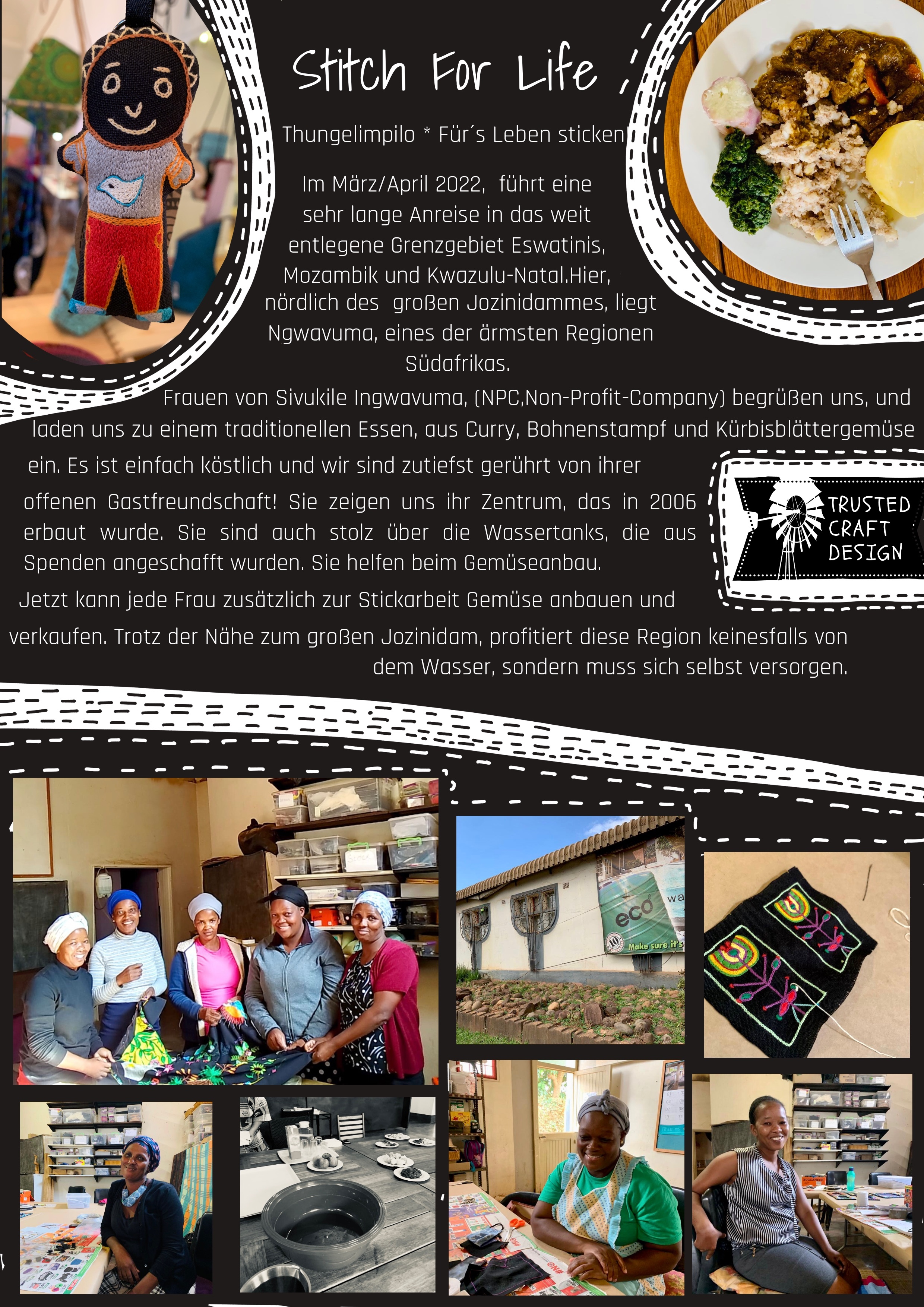
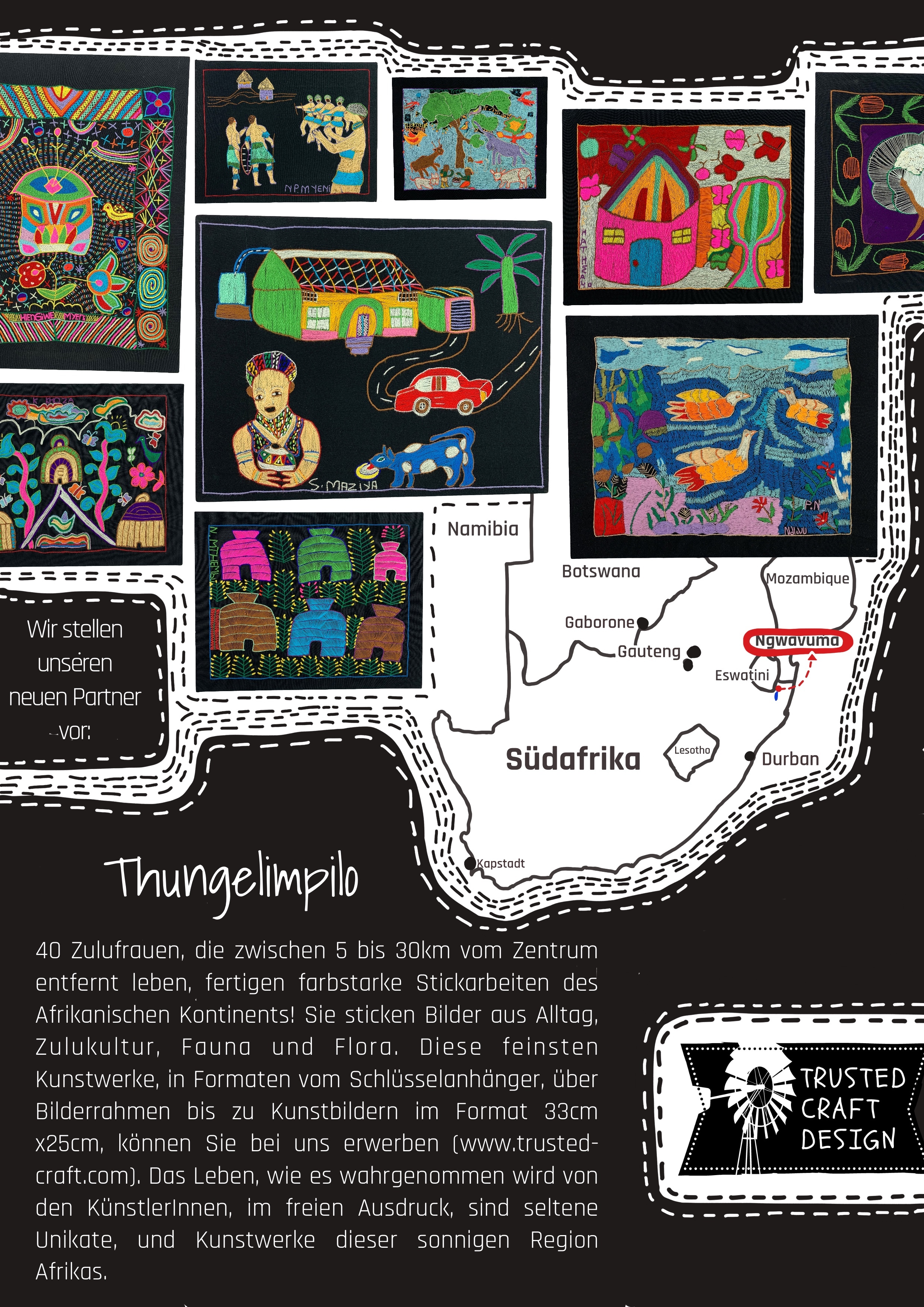
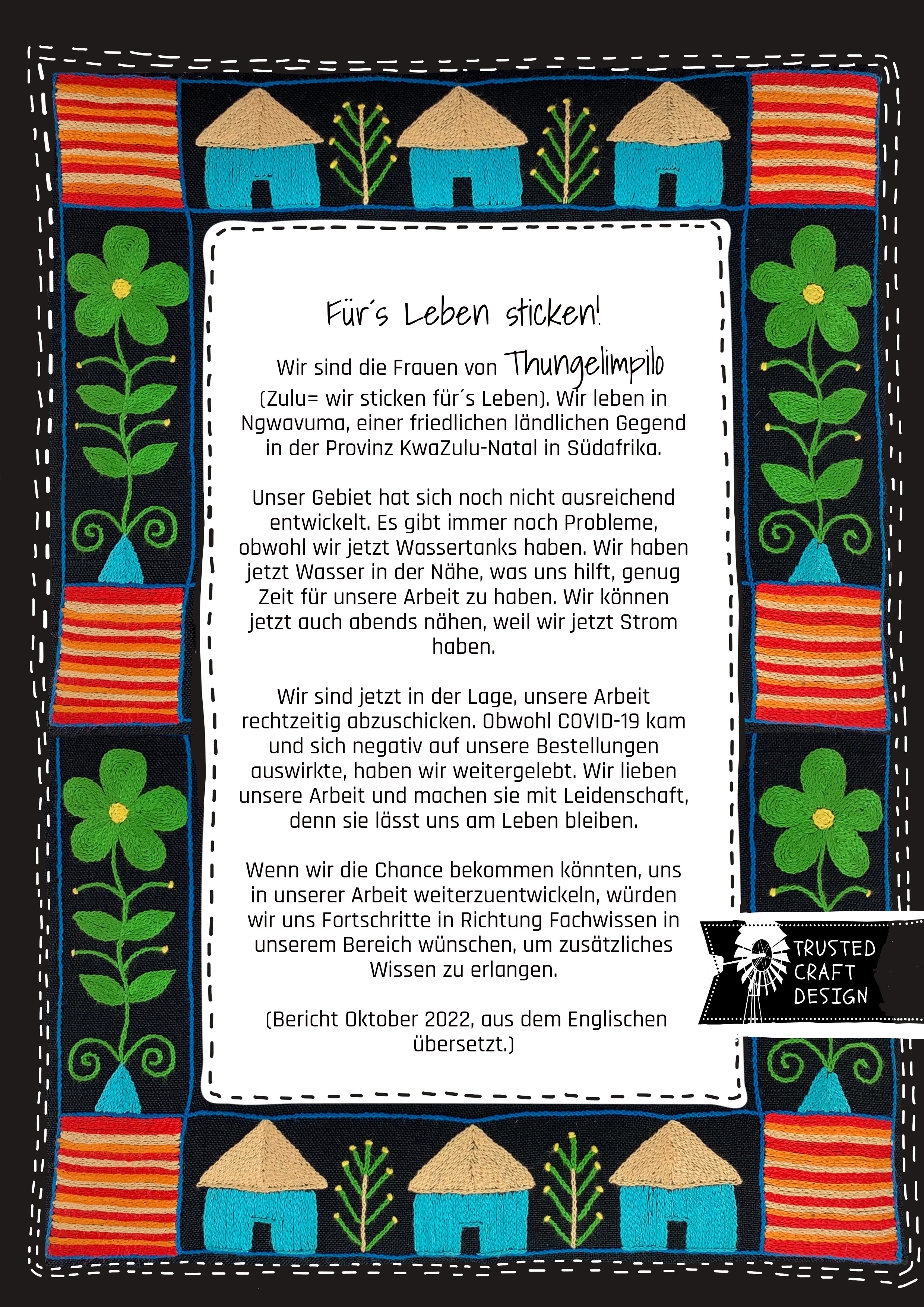
Thunglimpilo
In March/April 2022, a very long journey leads to the remote border area of Eswatini, Mozambique and KwaZulu-Natal. Here, north of the great Jozini Dam, lies Ngwavuma, one of South Africa's poorest regions.
8 women from Sivukile Ingwavuma (NPC non-profit company) welcome us and invite us to a traditional meal of curry, mashed beans and pumpkin leafy vegetables. It is simply delicious and we are deeply touched by their open hospitality! They show us their center which was built in 2006. They are also proud of the water tanks that were purchased from donations. They help grow vegetables. Now, in addition to embroidery, any woman can grow and sell yams, papaya, avocados, beans, and bananas. Despite the proximity to the large Jozinidam, this region does not benefit from the water and has to be self-sufficient. But they do report a "Plan of Action", a "Turnaround Strategy", a program that is intended to help them to develop themselves better, to take their future into their own hands.
40 Zulu women who live between 5 and 30 km from the center produce colorful embroidery work from the African continent! They embroider pictures from everyday life, Zulu culture, fauna and flora. You can purchase these finest works of art from us (www.trusted-craft.com), in formats ranging from key rings to picture frames to art pictures in the format 33cm x25cm. Life as perceived by the artists, in free expression, are rare, unique pieces and works of art from this sunny region of Africa.
We are the women of Thungelimpilo. We live in Ngwavuma a peaceful rural area in the province of KwaZulu-Natal in South Africa.
Our area has not yet developed sufficiently. There are still problems, even though we now have water tanks. We now get water close by, which helps us to have enough time for our work. We are now able to stitch in the evening too, because we now have electricity.
We are now able to send off our work in time. Even though COVID-19 came and had a negative impact on our orders, we have continued to live. We love our work and we are passionate about it, because it makes us stay alive.
If we could get a chance to be developed in our work, we would wish for progress towards expertise in our field, in terms of gaining additional knowledge.



